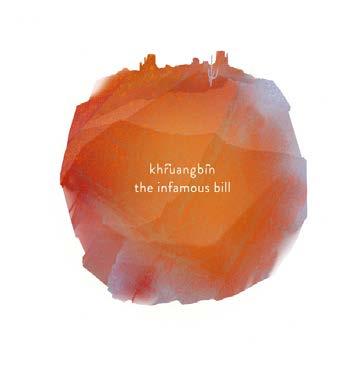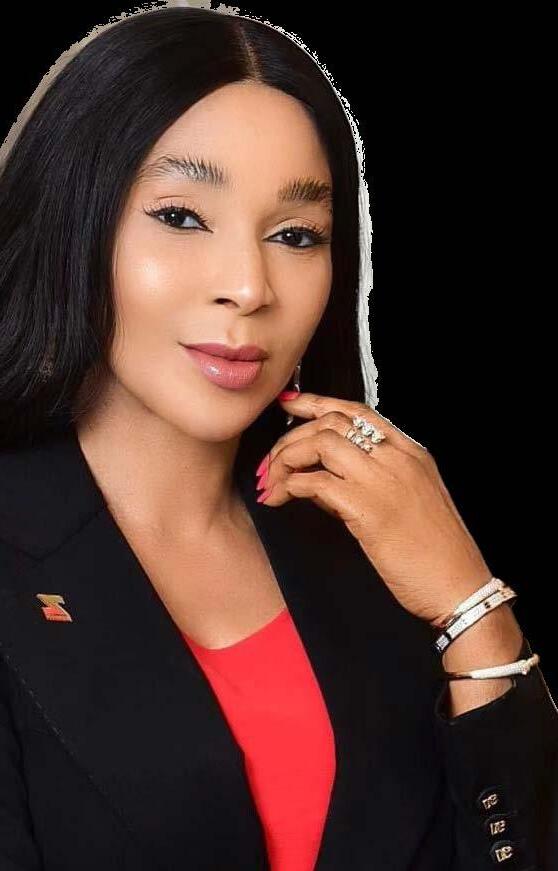
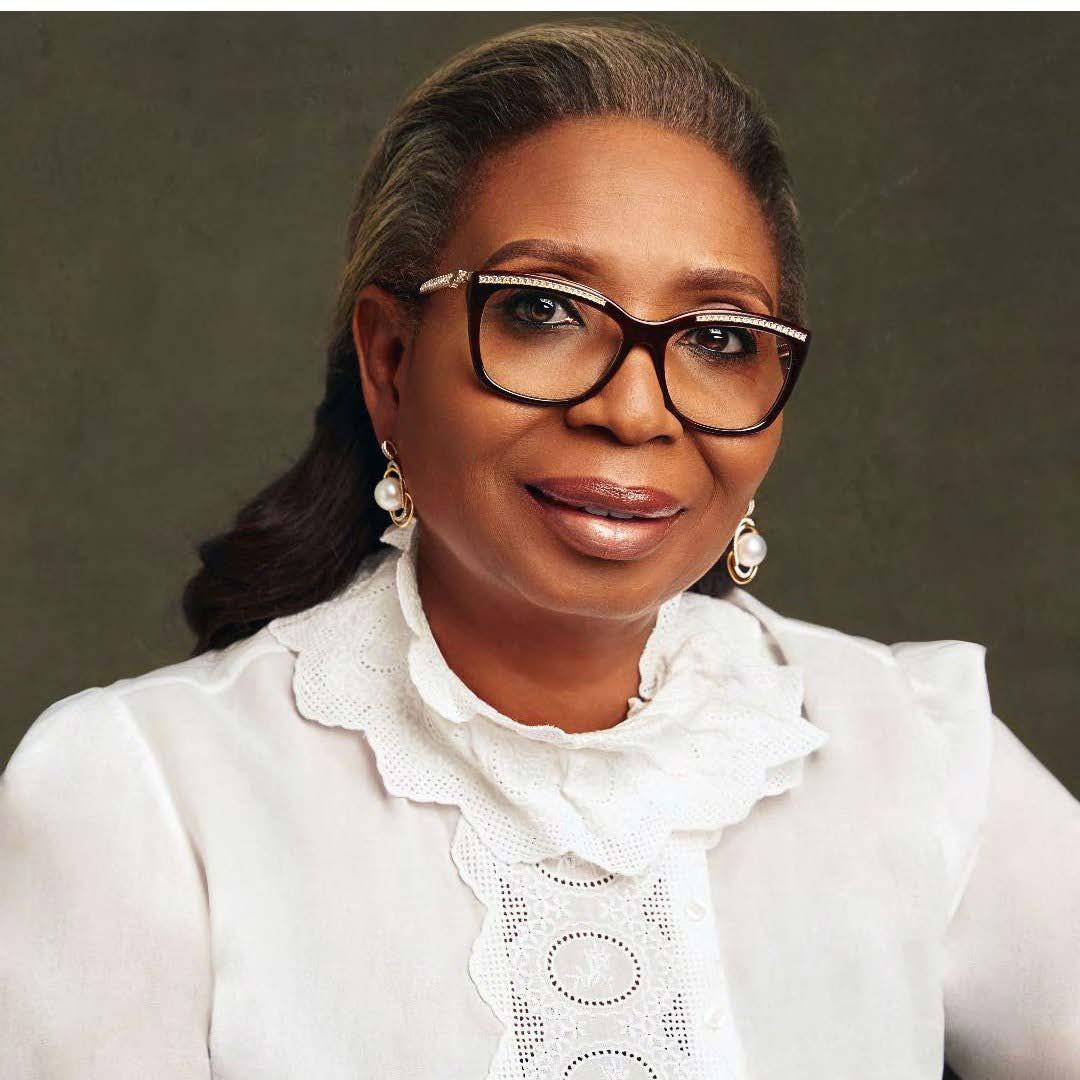
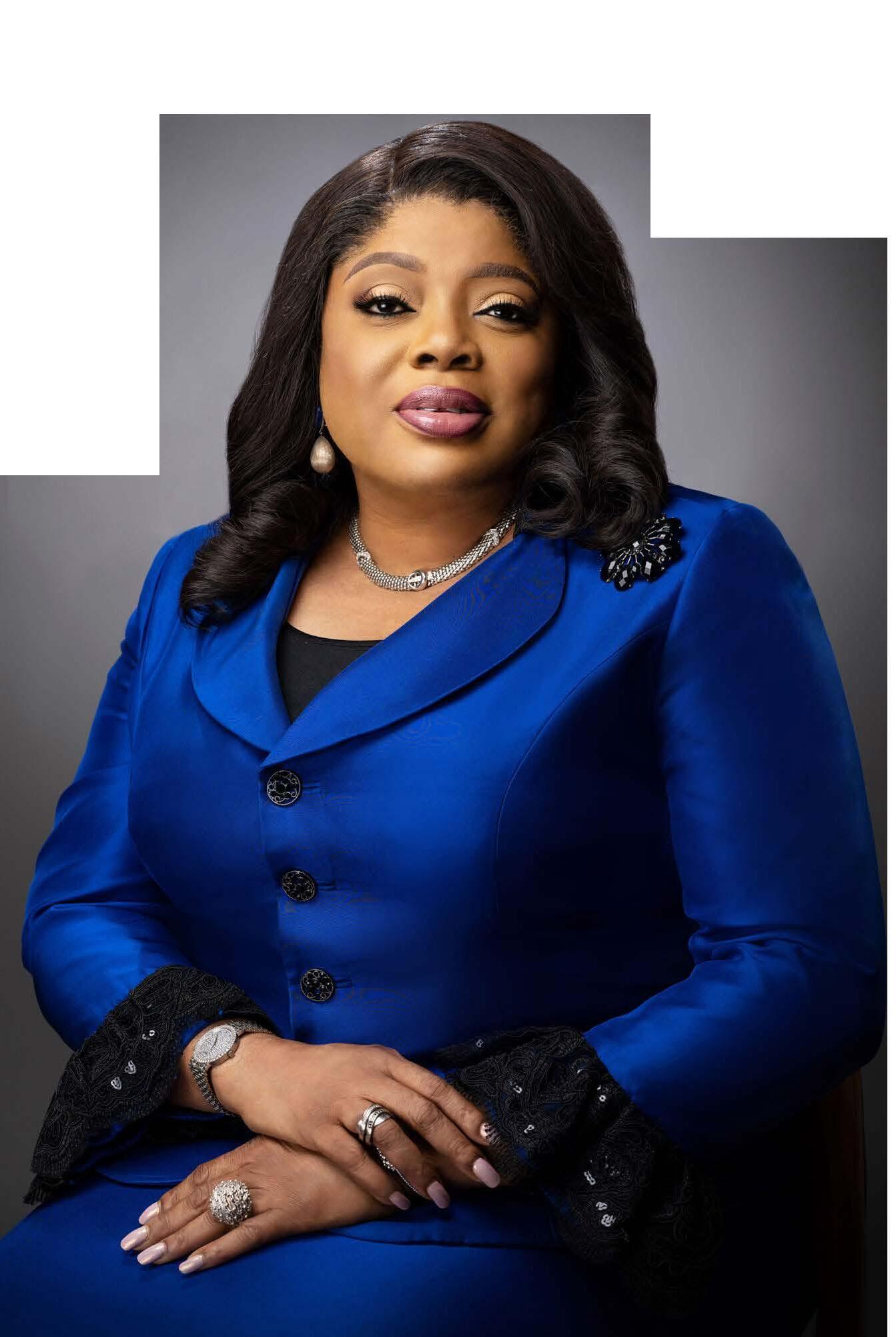
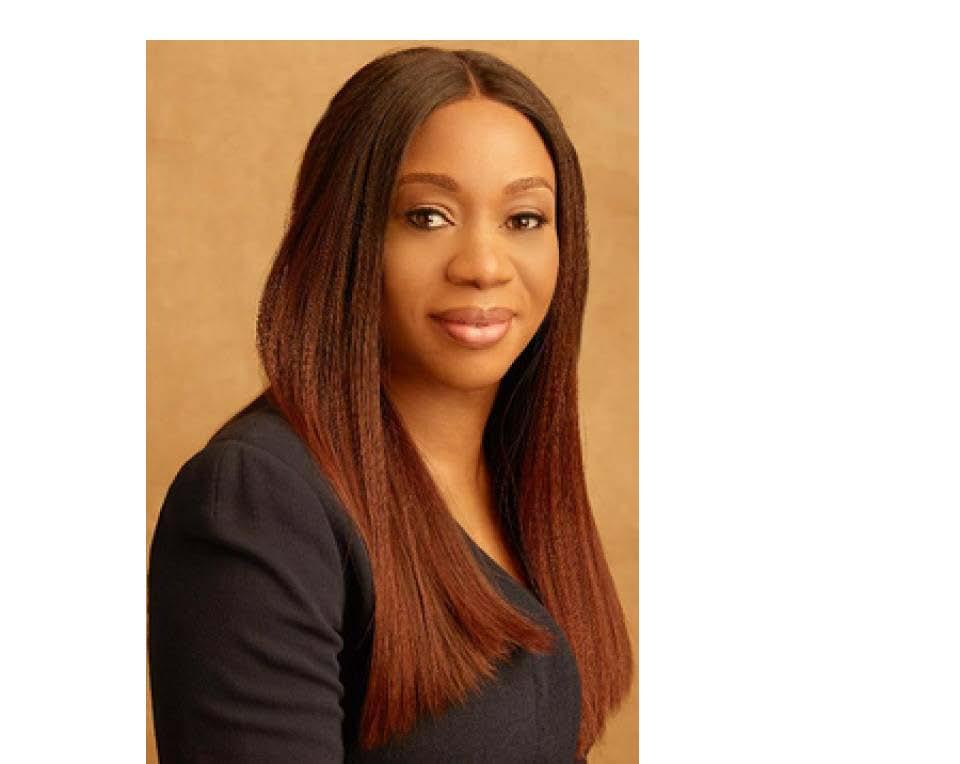
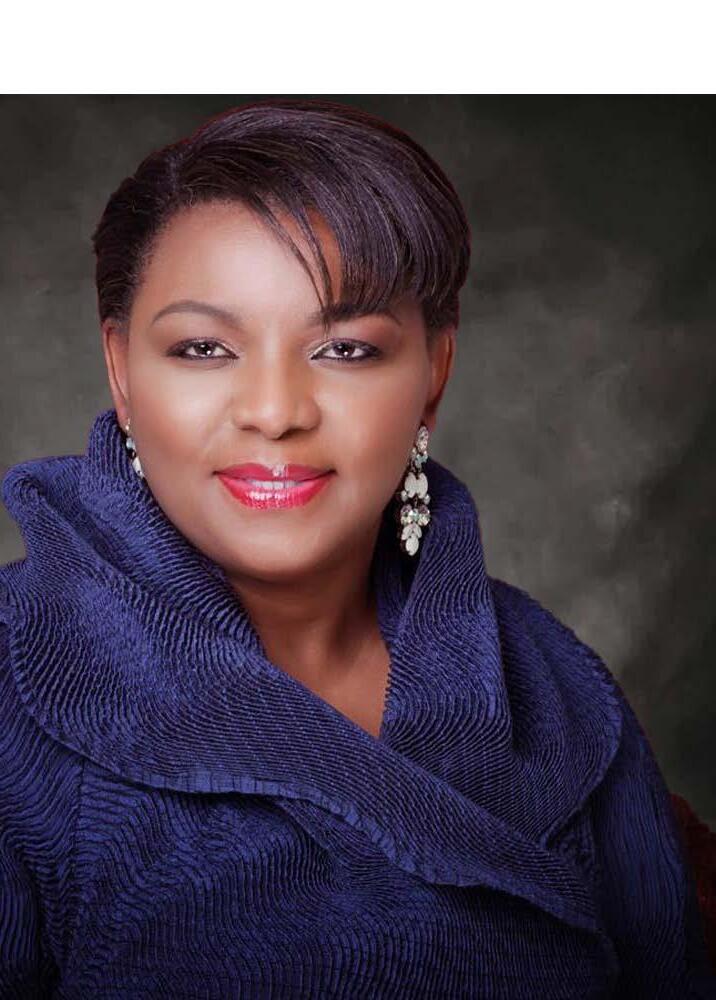

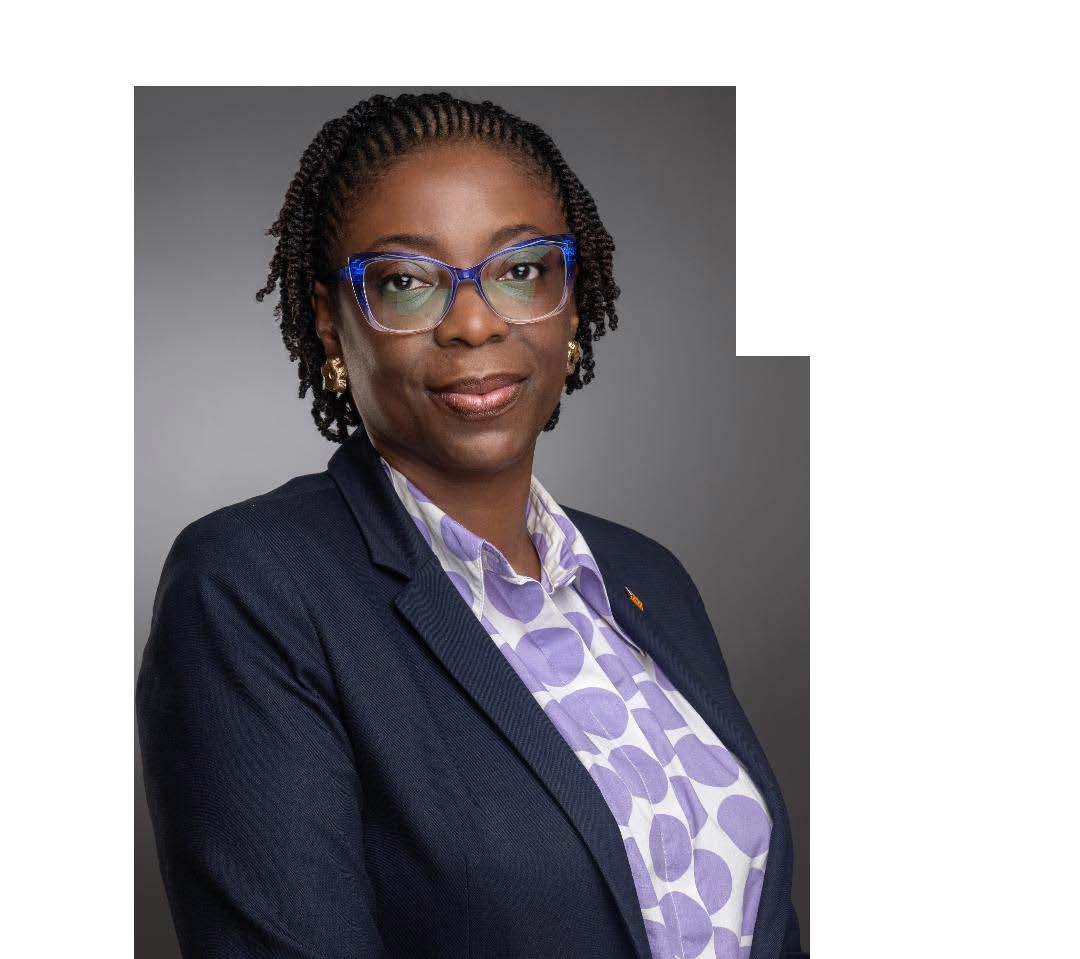
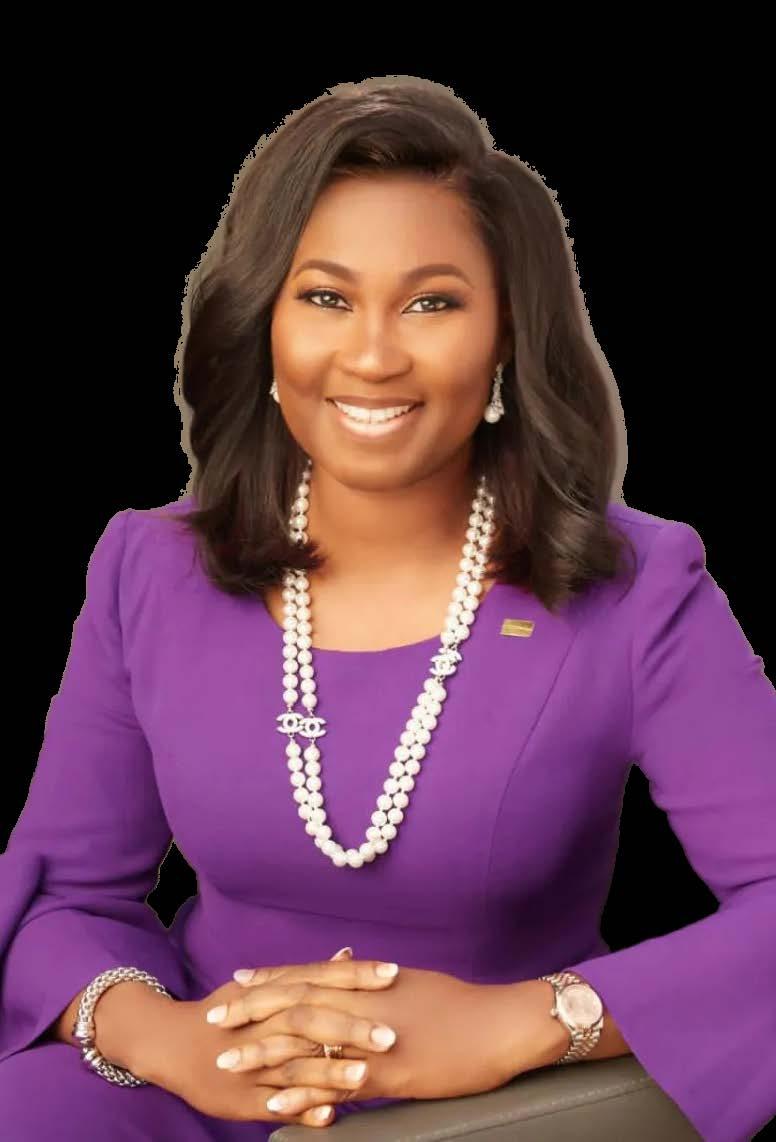
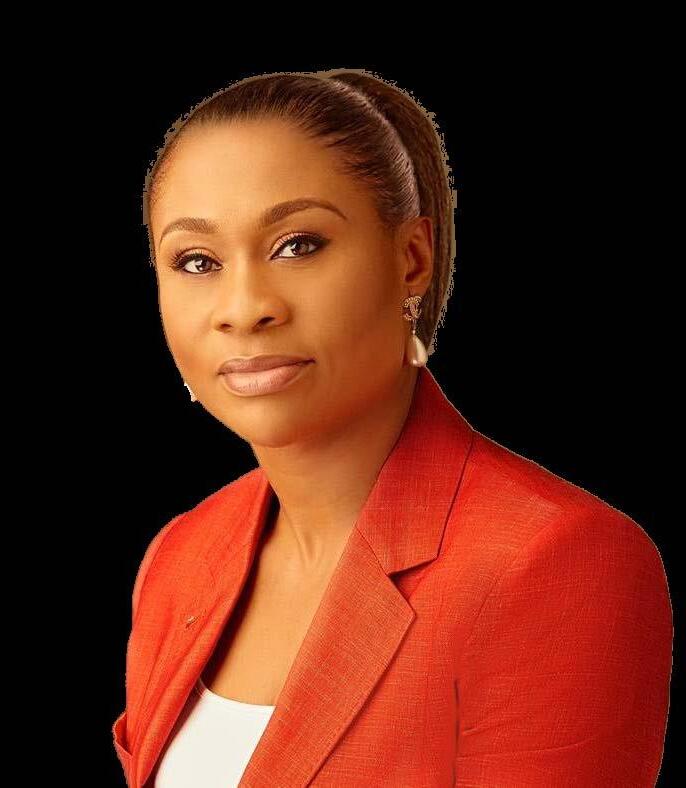
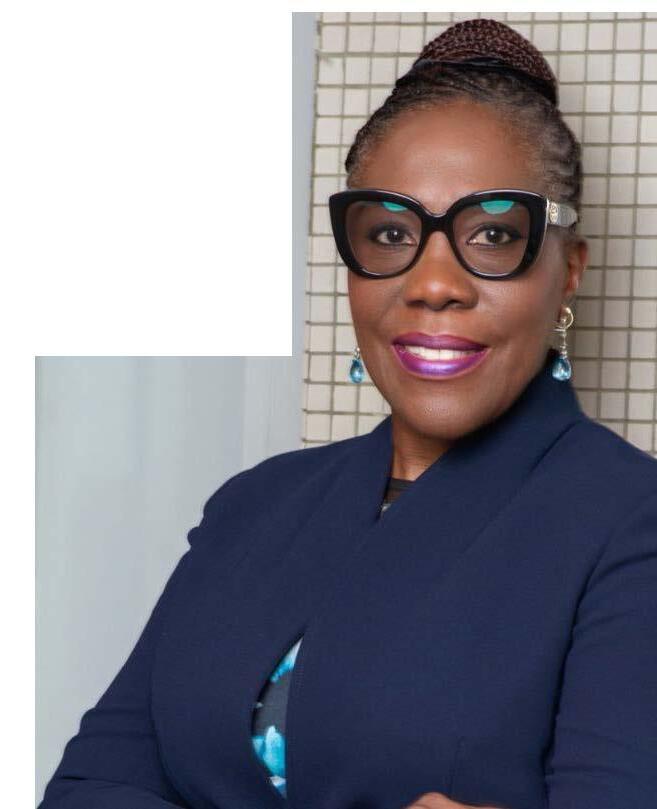











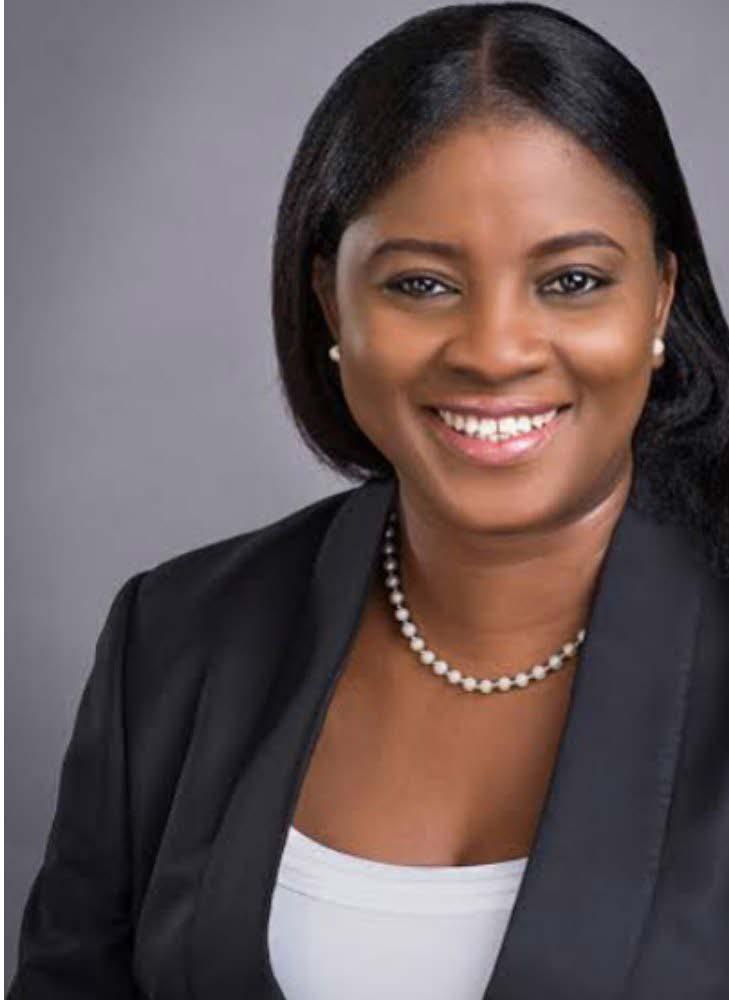


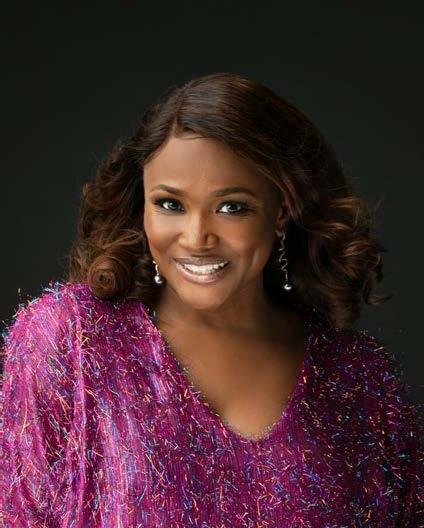

F12 Photo: Kola Oshalusi @insignamedia Makeup: Zaron
or decades, men have dominated the finance sector; however, in recent years, an increasing number of women have taken the helm of finance institutions. These women are more than individual success narratives; they represent a collective shift in how leadership is redefined in today’s economy. From transforming banking institutions to steering regulatory reforms, these women are actively reshaping the entire industry. Their impact extends beyond balance sheets and boardrooms. They embody resilience, mentorship, and vision, proving that leadership in finance is as much about empowering communities as it is about managing numbers.
What stands out most is their ability to navigate a space once dominated almost exclusively by men, while inspiring a new generation of women to see finance as a space where their voices belong. They show that influence today is not just tied to titles, but to the courage to lead boldly and differently.
Scroll on to pages 8 to 10 to see some of the women who have redefined the finance sector.
Like them or not, sneakers have become a fashion statement. When it comes to comfort, they are the goto shoes for everyone. However, choosing the wrong pair will leave your feet sore, with blisters and very uncomfortable. This week’s fashion pages highlight what you should look for when buying a pair of sneakers to get the best of them. See pages 4 and 5.
Uneven skin tone, meaning some parts of your skin are lighter or darker than others, is a common concern among people. Several factors, including ageing, exposure to sunlight, and hormonal changes, contribute to uneven skin tone; we offer suggestions for addressing this issue on our beauty page. That’s page 12.
As always, we have a couple of movie reviews, as well as a playlist for you to download, on page 16.


@onahluciaa + 2348033239132
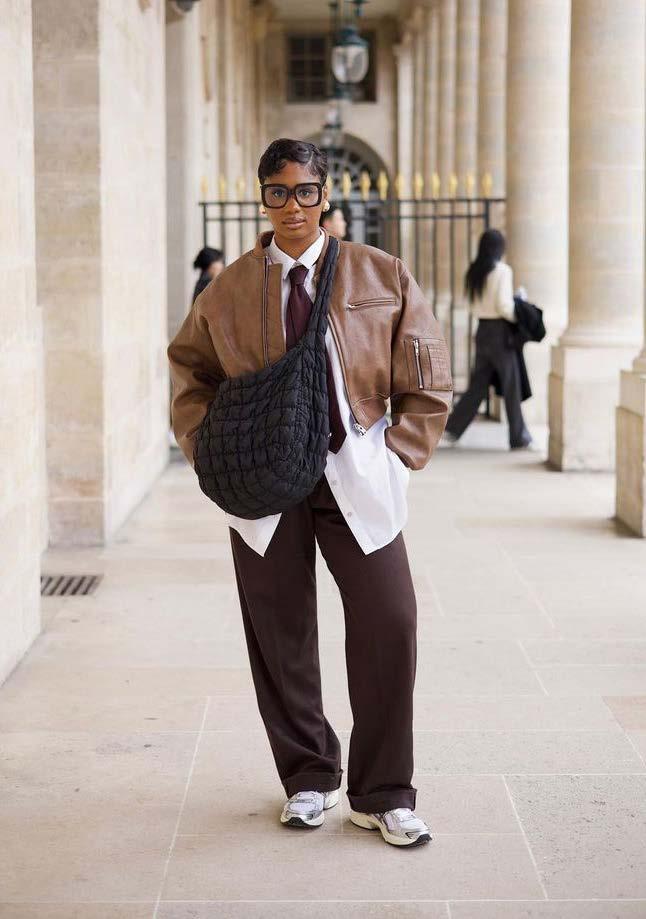
5 Ways to Fix Uneven Skin Tone
AUSTYN OGANNAH
PUBLISHER/EDITOR-IN-CHIEF
Writer: Johnson Chukwueke
Until next week, enjoy your read. www.thewilldowntown.com
Executive Editor: Onah Nwachukwu @onahluciaa
Design & Layout: Olaniyan John ‘Blake’
Digital Media: Oladimeji Balogun
Consulting Art Director: Sunny Hughes ‘SunZA’


Untold Truths The Mistress’s Confession 07 5 Ways to Choose The Right Sneakers For Style And Comfort 13 04-05 FASHION
DOWNTOWN ZODIAC
Mindful Mornings Routines For Work From Home Success
#UNSHAKABLE TRUTHS
8-10 15 16 14 REVIEW DOWNTOWN CONFIDENTIAL COVER
Money Moves Nigerian Women Who Have Redefined Finance
And
More Than the Moment



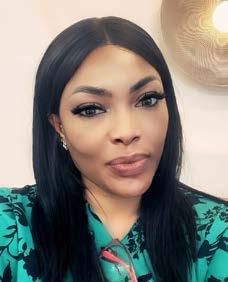
Boluwatife Adesina @bolugramm
- Contributing Writer
Boluwatife Adesina is a media writer and the helmer of the Downtown Review page. He’s probably in a cinema near you.
Dorcas Akintoye @mila_dfa_ - Contributing Writer
Dorcas Akintoye is a dedicated writer with 5 years prolific experience in writing articles ranging from food, entertainment, fashion and beauty. She loves writing, listening to music and playing scrabble. She is a highly-skilled, enthusiastic, selfmotivated professional writer. HIM
Sally Chiwuzie @unshakable.is.a.state.of.mind
- Contributing Writer
Sally Chiwuzie is a non-practising barrister who owns the brand #Unshakable. She is the author of Silent Symphonies, a fictional love story, and the creator of the podcast Chronicles of #Unshakable Truths.
Ada Obiajunwa @aaddaahh
- Contributing Writer
Ada Obiajunwa writes from Lagos about the big truths tucked inside ordinary moments — friendship, self-discovery, and the quiet revolutions of everyday life. She believes in the power of presence, good banter, and decoding the unsaid. Through her fragrance studio, WhiffWonders, she also crafts scents that weave memory and emotion into experiences that feel like home.













Libra The Harmonizers of the Zodiac @etalloyd @tatapong_beyala @isabellaadediji A powerhouse

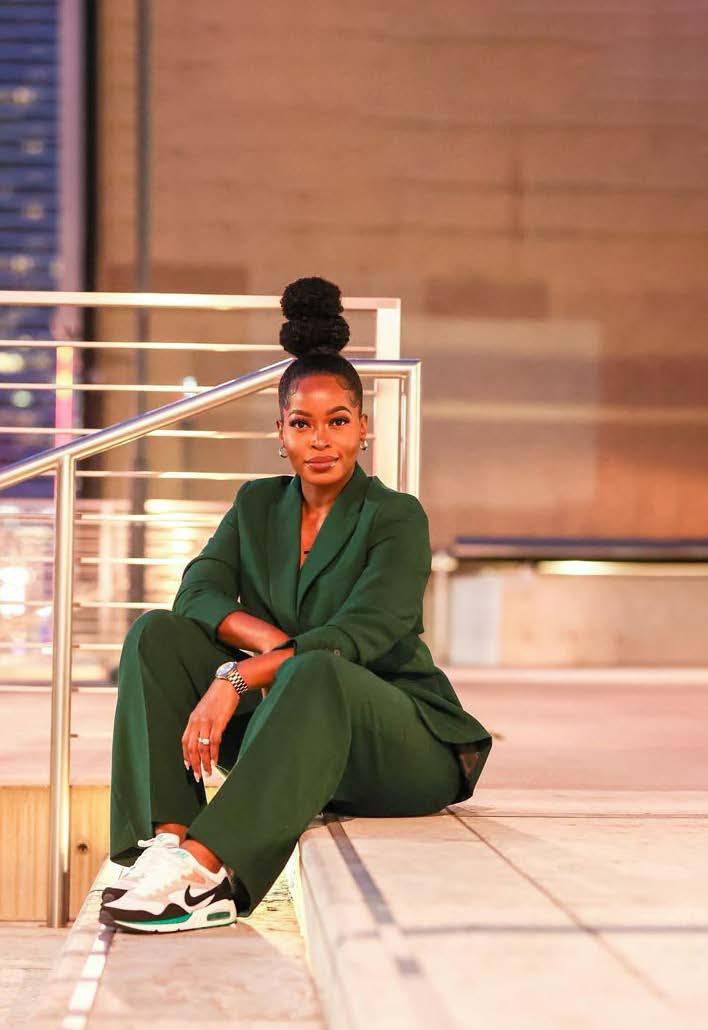
BY DORCAS AKINTOYE
hen it comes to footwear, sneakers are more than just shoes. They have become a fashion statement, a lifestyle choice, and at the same time, they play an important role in how comfortable your feet feel throughout the day. The wrong pair of sneakers can leave you with sore feet, blisters, or even back pain, while the right pair can boost your confidence and elevate your outfit effortlessly. The good news is, finding sneakers that give you both style and comfort is very possible; you just need to know what to look for. Let us show you five ways to choose the right sneakers for style and comfort.
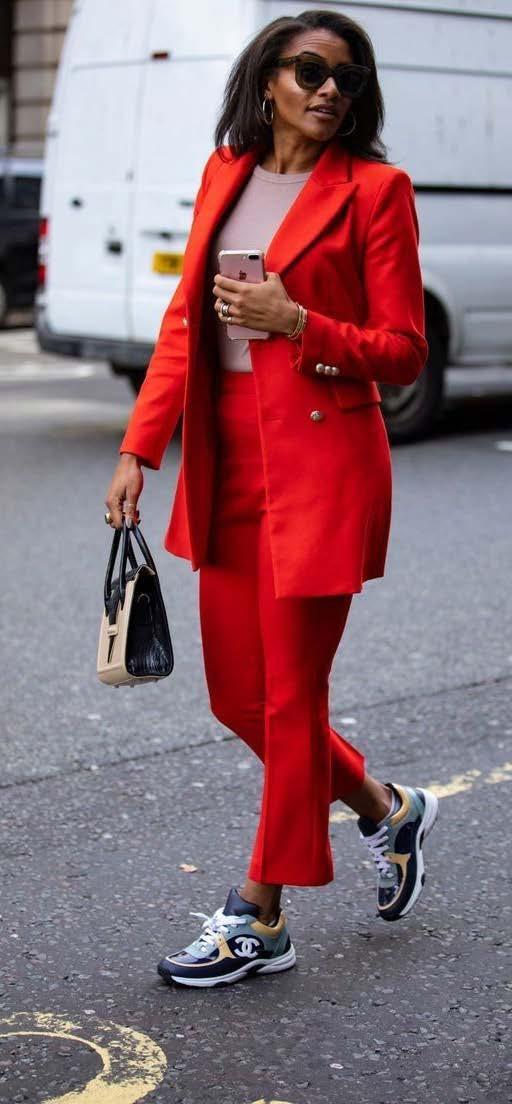
Before buying any sneakers, it’s essential to understand your foot type. Everyone’s feet are different; some people have flat feet, while others have high arches. If you don’t know your foot type, chances are you’ve been wearing the wrong shoes without realising it. Knowing your foot type allows you to easily select sneakers that provide maximum comfort and help prevent future foot problems. KNOW YOUR FOOT TYPE
Comfort in sneakers largely depends on cushioning and support. Cushioning is what makes your steps feel soft and less stressful, while support ensures your feet are stable and balanced. Look out for sneakers that have foam midsoles or gel padding, as these absorb impact and make walking or running easier. Also, pay attention to how the sneakers support your heel and arch area. Without proper cushioning and support, even the most stylish sneakers will feel like a burden after a few hours of wearing them.
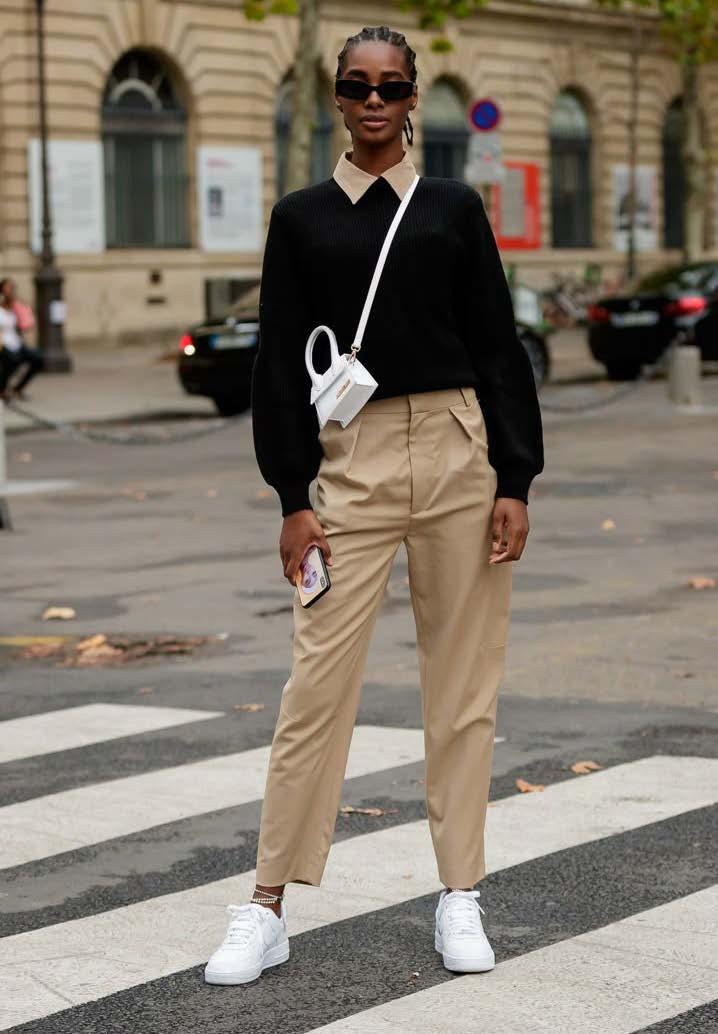
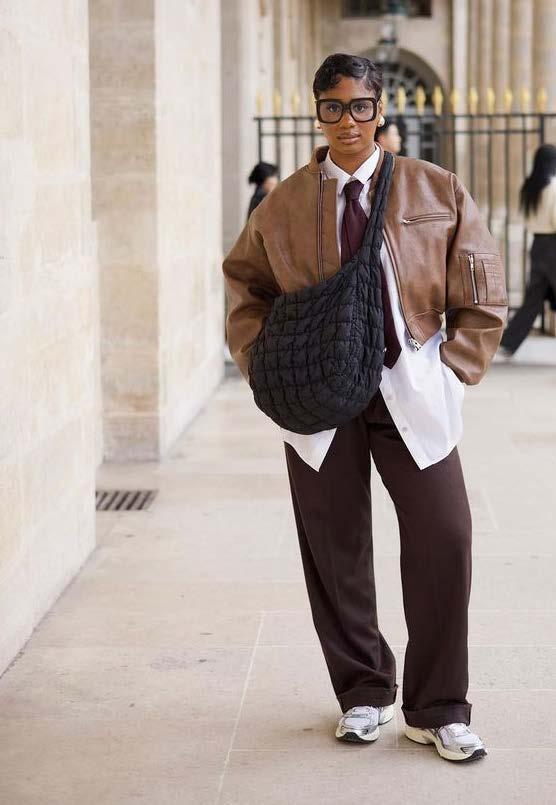
The material of sneakers determines not only how they look but also how they feel on your feet. Sneakers made from breathable materials, such as mesh or lightweight fabric, allow air to circulate, keeping your feet cool and preventing sweat and odour. On the other hand, leather sneakers often give a more stylish and classic look but may feel heavier and less breathable. The trick is to find sneakers that strike a balance between both, being both breathable and durable, so you don’t have to compromise on comfort or style.
No matter how trendy sneakers look, if they don’t fit properly, they will never be comfortable. When buying sneakers, make sure there’s enough room for your toes to move freely. Your sneakers shouldn’t feel too tight, and at the same time, they shouldn’t be too loose. A good rule is to leave about a thumb’s width of space between your longest toe and the end of the shoe. Also, remember that your feet can swell during the day, so it’s best to try on sneakers in the afternoon or evening to get the most accurate fit.

Style is about expressing yourself, and your sneakers should reflect that. Before buying a pair, consider how they will fit into your daily life and wardrobe. Do you need sneakers for casual outings, the office, or workouts? For example, white sneakers are versatile and can be paired with almost anything, while colourful or chunky sneakers make bold fashion statements. By choosing sneakers that match your lifestyle and outfits, you’ll always feel stylish without trying too hard. And when you love how they look on you, you’ll naturally feel more confident wearing them.
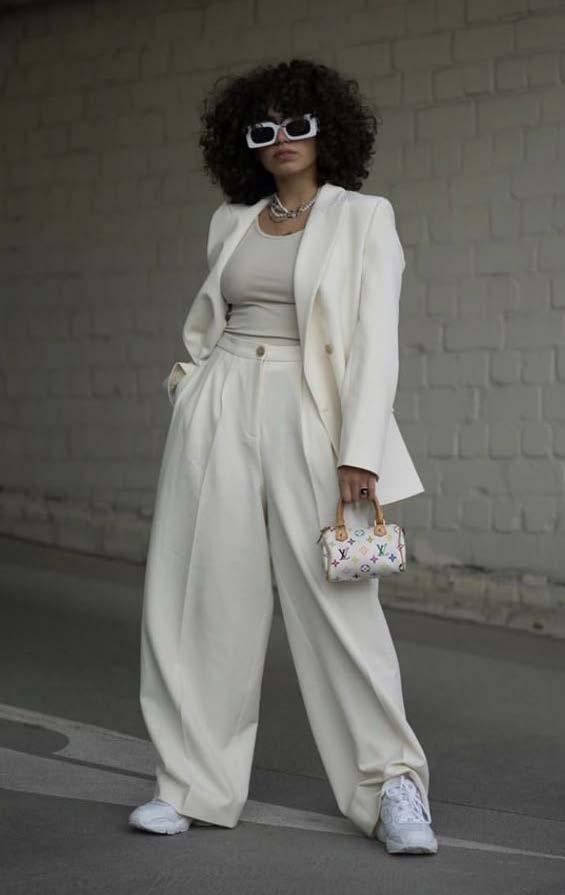
Choosing the right sneakers is all about balance; balancing style with comfort, looks with functionality, and fashion trends with your personal needs. Sneakers are an investment in both your style and health, so make the choice wisely.



SALLY CHIWUZIE @unshakable.is.a.state.of.mind
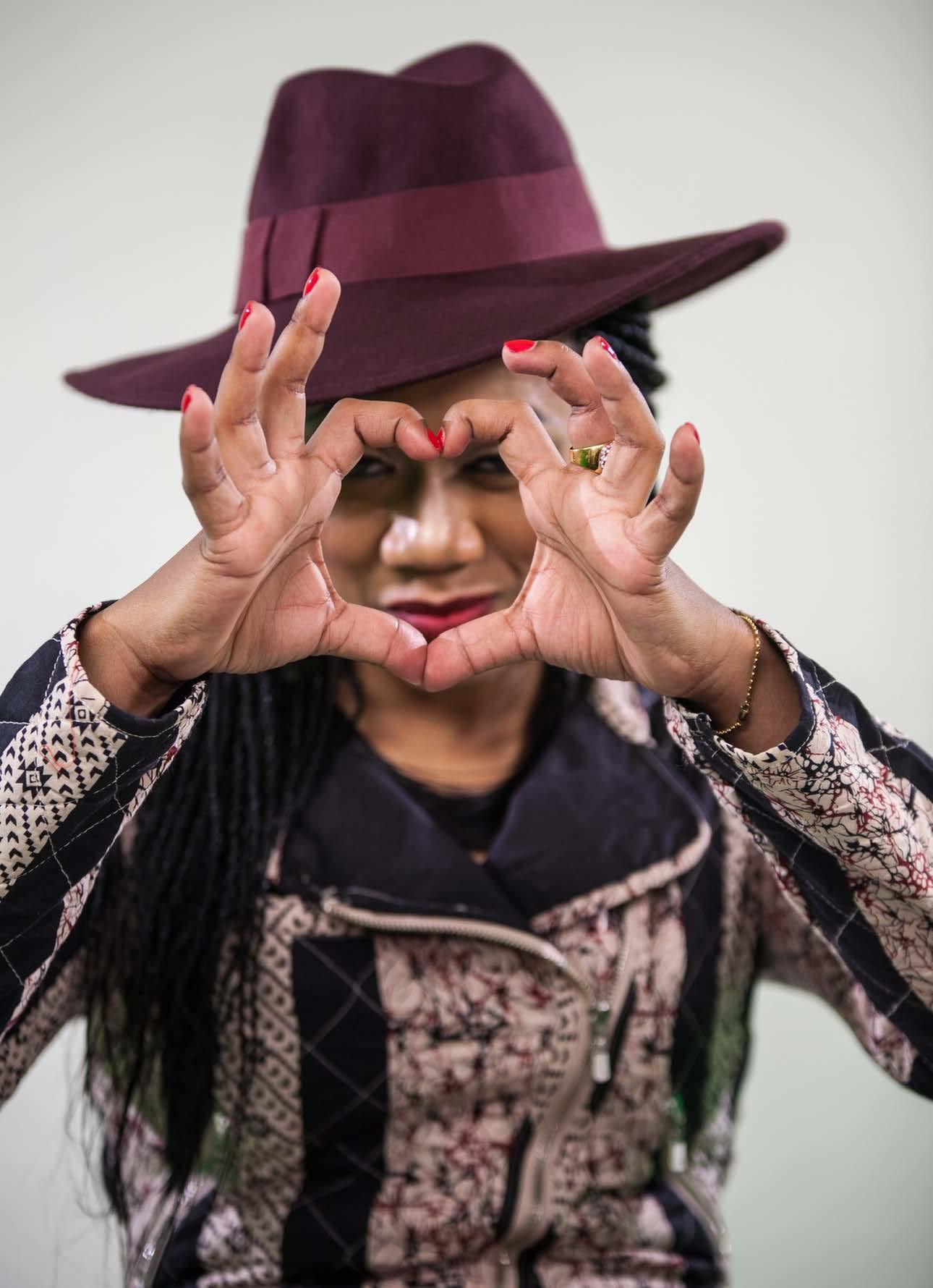
This is the side of the story that rarely gets told. When people speak of affairs, the wife is cast as the victim, the husband as the villain. The mistress? She is the convenient scapegoat — shameless, selfish, a homewrecker. End of story. But real life is never so clean. For her, it started from nowhere. A chance encounter, a conversation that should have remained harmless. She was not looking. She prided herself

on being principled, a woman of moral standing, the kind who rolled her eyes at gossip. And yet, when it happened, she fell. She gave him her love, and he accepted. Encouraged, she gave him more. That was the beginning of the complexity. Because technically, he did not have the love to reciprocate. Neither did he have the capacity to fully accept hers. He was married. Bound. Unavailable in every sense that mattered. And yet he took what was offered, anyway. And she knew. She knew he could never be hers. She knew the rules of the game before she agreed to play. But perhaps she hoped. Perhaps the way he held her, the way he confessed his emptiness, felt too real to be anything but true love. But was it true love? True love does not come with terms and conditions, does it? True love does not require lies or shadows. True love does not leave someone always waiting.

So, was this love — or weakness? Moral weakness? She judged herself long before others could. Every time she left his side, she wondered if she was foolish, reckless, destructive. Yet she also wondered if there was room for grace. Affairs are universally condemned, but is there no room to admit that sometimes these things are circumstantial? That sometimes, they begin not with malice but with loneliness, with unmet needs, with timing that goes terribly wrong? Are there no situations where it can be understood — or even, dare we whisper it, where it has worked out? Or is it always a general “no, crucify her”?
And what of him? What is his own problem? This is where last week’s truth lingers. He was a man who gave his wife everything but his heart. Outwardly a provider, inwardly a prisoner of silence. His wife begged not for money or status but for love, and he looked away. Yet with his mistress, he found the tenderness he claimed he could not give.
But let’s be honest, too. Sometimes there are exceptions — complicated, circumstantial, tangled in loneliness and unmet needs. But sometimes the recklessness is intentional. Sometimes it is just sin — the kind both man and mistress enjoy without excuse, without justification, simply because it feels good in the moment. For no reason. It just is.
To some, she is selfish. To others, he is the villain. The truth? They both are. And they both are victims. He, of a stoic upbringing and cultural silence around male vulnerability. She, of a heart that believed what she should have resisted.
It is too easy to cast her only as shameless. Because she loved him, she gave him more. And though she knew he could never fully love her back, she accepted scraps in place of substance. To the world, that makes her desperate. To herself, it made her human.
The tragedy is not simply in her role as mistress. It is in the fact that their love felt real, yet could never be whole. They lived suspended between selfish desire and impossible longing, both complicit, both broken.
So here lies the untold truth: not all mistresses are villains, not all husbands are monsters, not all wives are saints. Love is not always neat, moral, or fair. Sometimes it is messy, circumstantial, and painfully human. And sometimes, it is reckless, indulgent, and nothing more than a sin enjoyed by two people who should know better.
And perhaps this is the #Unshakable lesson: judgment is easy, but compassion is harder. To sit in the discomfort of their story is to acknowledge that life does not always fit into categories of good and bad. Sometimes, everyone carries both. Sometimes, love exists in places it should not — and yet it still exists.
‘See’ you next week.
BY JOHNSON CHUKWUEKE
Breaking through a historic glass ceiling, Dame (Dr.) Adaora Umeoji became the first female Group Managing Director and CEO of Zenith Bank Plc, a milestone that marked a new era for one of Nigeria’s most influential financial institutions. With over 30 years of banking experience, 26 of which have been with Zenith, her rise from Deputy Managing Director to the top spot speaks to her deep institutional knowledge and leadership acumen.
Under her tenure, Zenith Bank has delivered marathonstrength financial performance: a staggering $671 million in profit for 2024, a record-breaking figure that underscores the success of her strategy. In Q1 2025 alone, the bank reported $194.4 million in profit, expanding its dominance even further.
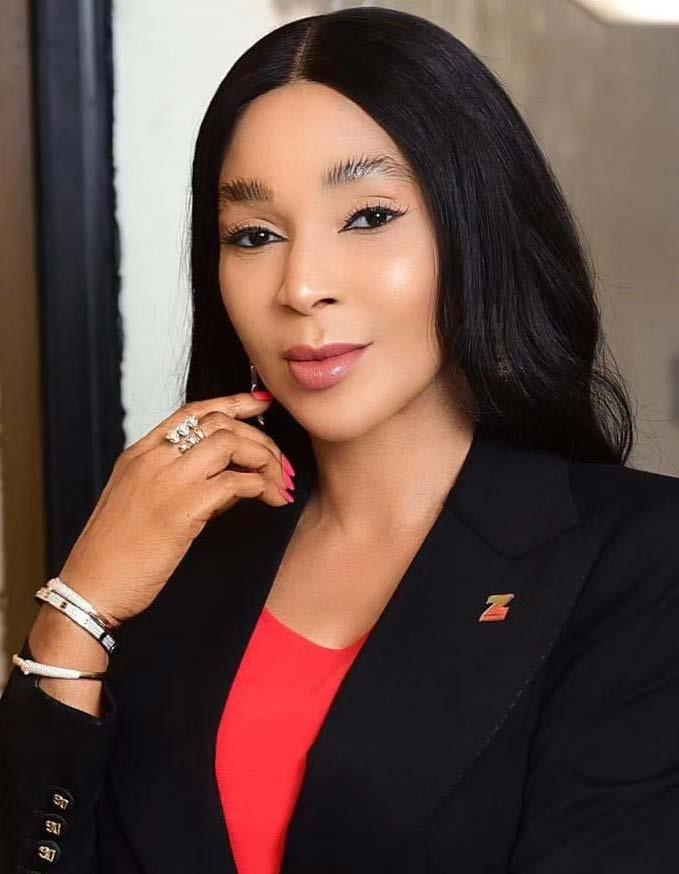
Her leadership is more than about numbers; it’s transformative. In 2025, she led Zenith to exceed the Central Bank’s N500 billion capital requirement, achieving 160% capitalisation and signalling resilience amid regulatory shifts. Adaora Umeoji is not just a bank CEO; she is a recognised leader in governance, ethics, and social impact. A recipient of Nigeria’s national honour, Officer of the Order of the Niger (OON), and numerous accolades, including Banker of the Year 2024, she also champions values-driven banking and mentorship. At the helm of Zenith Bank, she is not just redefining its path; she’s redefining what leadership looks like in African finance.
For decades, Nigeria’s finance industry was a space largely dominated by men, an arena where decisions about wealth, investments, and growth were often shaped without women in the room. But today, the tide has shifted. Nigerian women are not only stepping into these boardrooms; they’re commanding them, breaking barriers, and proving that intelligence, resilience, and vision, not gender, define true leadership.
Across banking, asset management, fintech, and venture capital, a new generation of women is leaving an indelible mark. They are the financial strategists advising billion-naira businesses, the innovators behind disruptive fintech solutions, and the risk managers charting new paths for global partnerships. Their rise is not by accident; it’s the product of grit, brilliance, and an unyielding determination to succeed in a world that once underestimated them.
But their story goes beyond professional milestones. These women are changing perceptions of what success looks like. They are mentors, role models, and proof that balance is possible between career ambition and personal life. In their journeys, we see resilience against systemic challenges, creativity in solving problems, and a fierce commitment to paving the way for the next generation of women in finance.
This cover story is more than a celebration; it’s an exploration of how Nigerian women are rewriting the rules of money and influence. From boardroom strategy sessions to groundbreaking fintech innovations, they are proving that the future of finance in Nigeria is not only female, it is bold, dynamic, and unstoppable.
Emem Nnana Usoro stands out as one of the most experienced and dynamic figures in Nigeria’s banking industry, bringing over two decades of expertise to her current role as Deputy Governor, at the Central Bank of Nigeria (CBN). Appointed in 2023, she plays a pivotal role in overseeing the bank's management.
Her finance journey began after earning a degree in Biochemistry from the University of Uyo, followed by an MBA from Obafemi Awolowo University, Ile-Ife. She further sharpened her leadership skills through executive programs at Lagos Business School and Harvard Business School. Before joining the CBN, Usoro had a remarkable career at United Bank for Africa (UBA), where she served as Executive Director for the Northern Bank Directorate. In that role, she drove business strategy and sales across a vast and diverse region, demonstrating her ability to balance growth with inclusion.
A Fellow of the Chartered Institute of Bankers of Nigeria (CIBN), Usoro has consistently been recognised for her operational excellence and her capacity to turn around underperforming units into profit centres. Her appointment places her at the heart of the CBN’s modernisation drive, where stability and innovation are crucial to Nigeria’s financial future. Usoro embodies resilience, vision, and the technical expertise required to keep the nation’s banking machinery running smoothly.
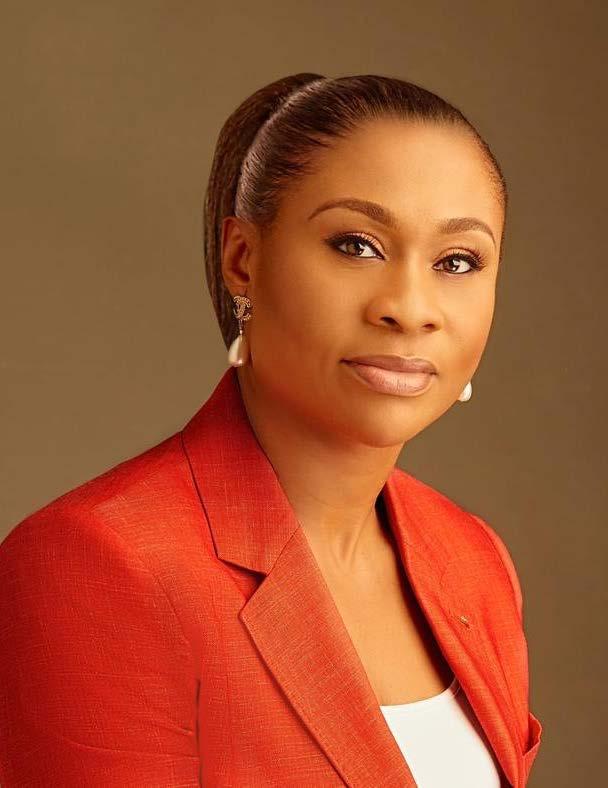
When Yemisi Edun took the reins as the first female Managing Director and CEO of First City Monument Bank (FCMB), she did so with a clear vision: to make finance more inclusive, especially for small businesses and underserved communities. In her short tenure, she has turned that ambition into action and results.
A seasoned banker with nearly 35 years of experience, Edun began her career in corporate finance at Akintola Williams Deloitte before transitioning to FCMB in 2000. She cut her teeth in internal audit and control before rising to CFO and ultimately becoming MD. Her rise reflects both technical excellence and strategic foresight.
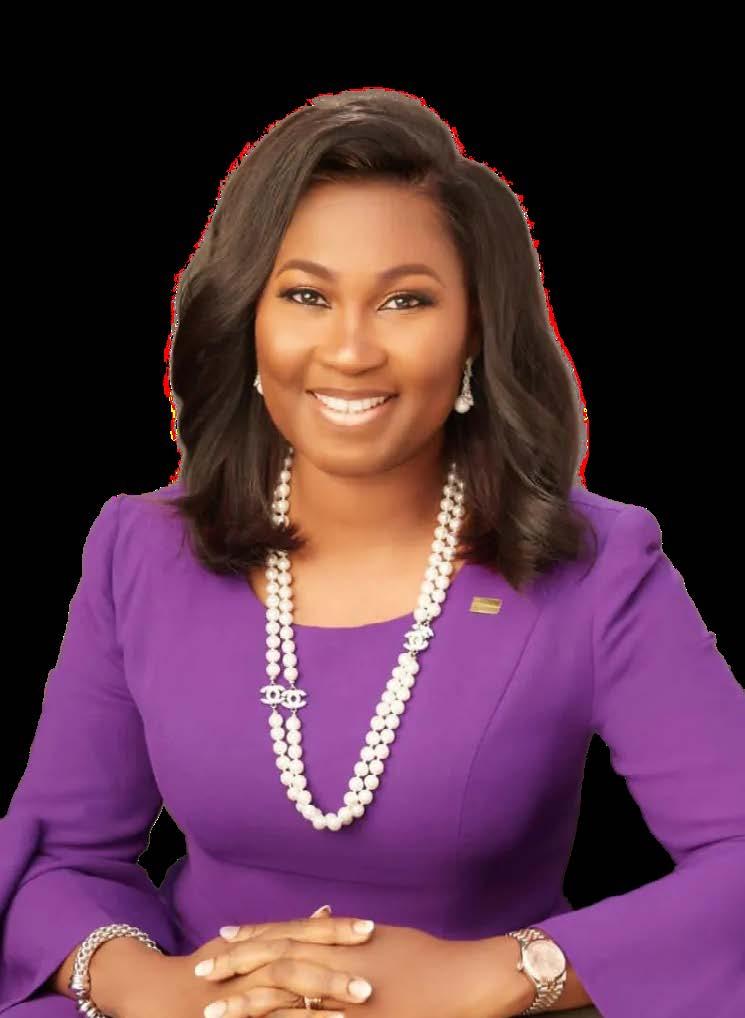
Under her leadership, FCMB redefined SME banking in Nigeria, disbursing over 50,000 loans through its SheVentures programme, including interest-free credit and loan guarantees targeting women entrepreneurs. The bank also pushed boundaries with over N208 billion disbursed through digital channels and AI-powered lending workflows, improving both efficiency and financial inclusion.
Despite economic turbulence, Edun maintained profitability, a 72% growth in profit before tax in 2022, and even extended support to renewable energy SMEs with nearly N2 billion in dedicated loans. Her work has not gone unnoticed: she was named Banker of the Year 2023, earned a fellowship from the Chartered Institute of Bankers of Nigeria, and tapped into national recognition for driving impactful change.
Yemisi Edun’s brand of leadership isn’t about transactions; it’s about transformation: for FCMB, for Nigerian businesses, and for the future of equitable finance.
In July 2021, Miriam Olusanya made history as the first female Managing Director of Guaranty Trust Bank, stepping into a role previously held by the institution’s founding generation. With over two decades of experience, from executive trainee to finance executive, she has risen through GTBank’s ranks with strategic savvy and unwavering dedication.
As Group Treasurer and Head of Wholesale Banking prior to her appointment, Olusanya managed critical functions including asset and liability management, treasury operations, and foreign exchange trading. Her leadership underpinned the bank’s financial resilience and market reputation.
With an educational foundation in Pharmacy from the University of Ibadan and an MBA in Finance and Accounting from the University of Liverpool, she combines analytical precision with financial marketing foresight. She has also enhanced her expertise through executive programs at top global institutions and holds a professional dealing certification from the Association Cambiste Internationale (ACI).
Her impact extends beyond GTBank, she serves on the Board of GTBank Gambia and contributes to national financial policymaking as a member of the Bankers’ Committee’s Financial Markets Subcommittee.
Miriam’s ascent symbolises more than personal achievement; it reflects GTBank’s evolution into a more inclusive cultural and strategic force. In an industry historically dominated by men, she stands as both a pioneer and a role model, showing that leadership, competence, and grace are what define the summit, regardless of gender.
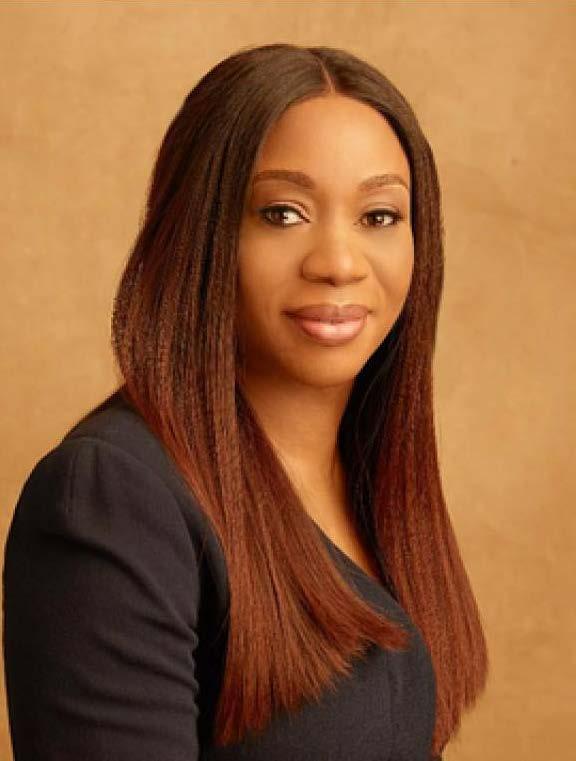
In a moment demanding courage and clarity, Bolaji Olaitan Agbede rose to the occasion. Appointed Acting Group CEO of Access Holdings following the tragic passing of Dr. Herbert Wigwe, she brought nearly three decades of institutional knowledge and steady leadership to Nigeria’s financial landscape.
Bolaji’s journey began at Guaranty Trust Bank in 1992, where she ascended from executive trainee to manager by 2001. She later led JKG Limited as CEO before joining Access Bank in 2003 to manage its chemical trading portfolio. In 2010, she became Head of Group Human Resources, a role she held until 2022, where she played a critical part in talent development and culture building.
When Access transitioned into a holding company, she was appointed Executive Director, Business Support, overseeing workforce integration and the company’s strategic restructuring. In her time as Acting CEO, she maintained stability, successfully executed the company’s ₦351 billion rights issue, and hosted two seamless AGMs, demonstrating her capability in crisis-led leadership.
Bolaji holds a BSc in Mathematics & Statistics from the University of Lagos and an MBA from Cranfield University, UK. Her development path includes elite leadership programs at IMD and London Business School—a testament to her continuum of excellence.
Bold yet steady, Bolaji Olaitan Agbede embodies leadership grounded in deep experience and unwavering commitment, a clear agenda setter not just for Access Holdings, but for women in Nigerian finance.
Ibukun Awosika
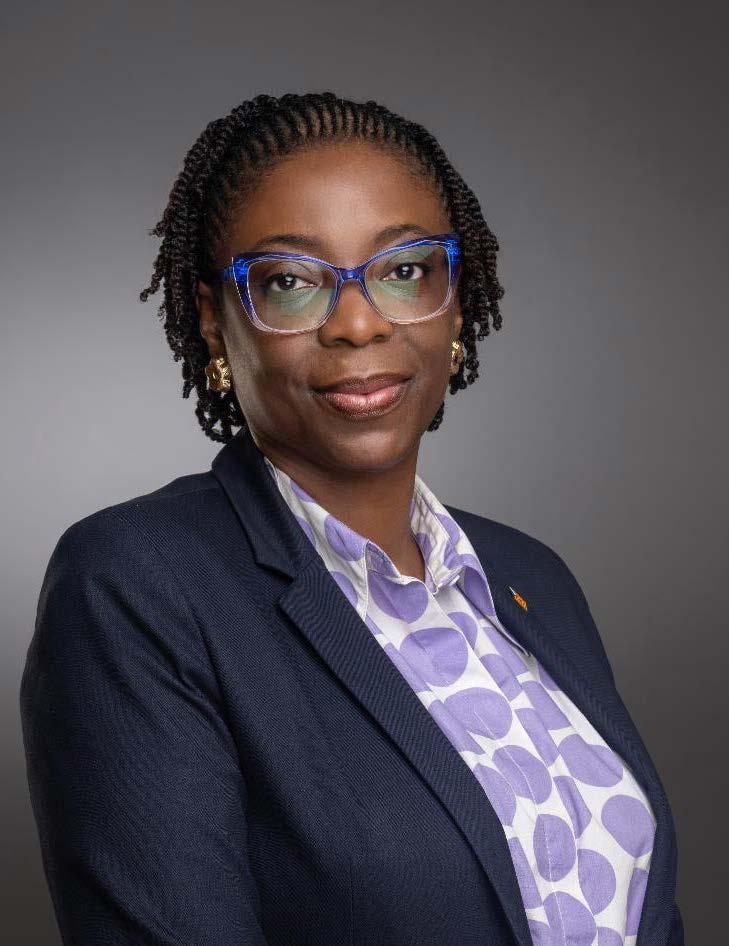
Ibukun Awosika is a true trailblazer in Nigeria’s business and finance landscape. In 2015, she made history as the first female Board Chairperson of First Bank of Nigeria Limited, shattering a glass ceiling that had remained untouched since the bank’s founding in 1894.
With a degree in Chemistry from the University of Ife and advanced business education under her belt, from Lagos Business School to IESE and Wharton’s Global CEO Program, she built her career on tenacity and vision. Her entrepreneurial journey began with the founding of Quebees Ltd. in 1989 from her home, which evolved into The Chair Centre Group, a respected enterprise that designs and manufactures quality furniture and security solutions for banks across West Africa.
Beyond business success, Ibukun’s leadership has a social reach. She co-founded WIMBIZ and the Afterschool Graduate Development Centre (AGDC), both dedicated to empowering young Nigerians through mentorship and entrepreneurship. Additionally, as an ordained pastor and founder of the Christian Missionary Fund, she supports humanitarian efforts across Nigeria.
A multi-awardwinning author and media presence, hosting Business His Way and even appearing in the film Citation, she combines business savvy with cultural influence.
Ibukun Awosika’s journey exemplifies how entrepreneurial roots, ethical leadership, and cultural influence can converge to dismantle barriers, one boardroom at a time.
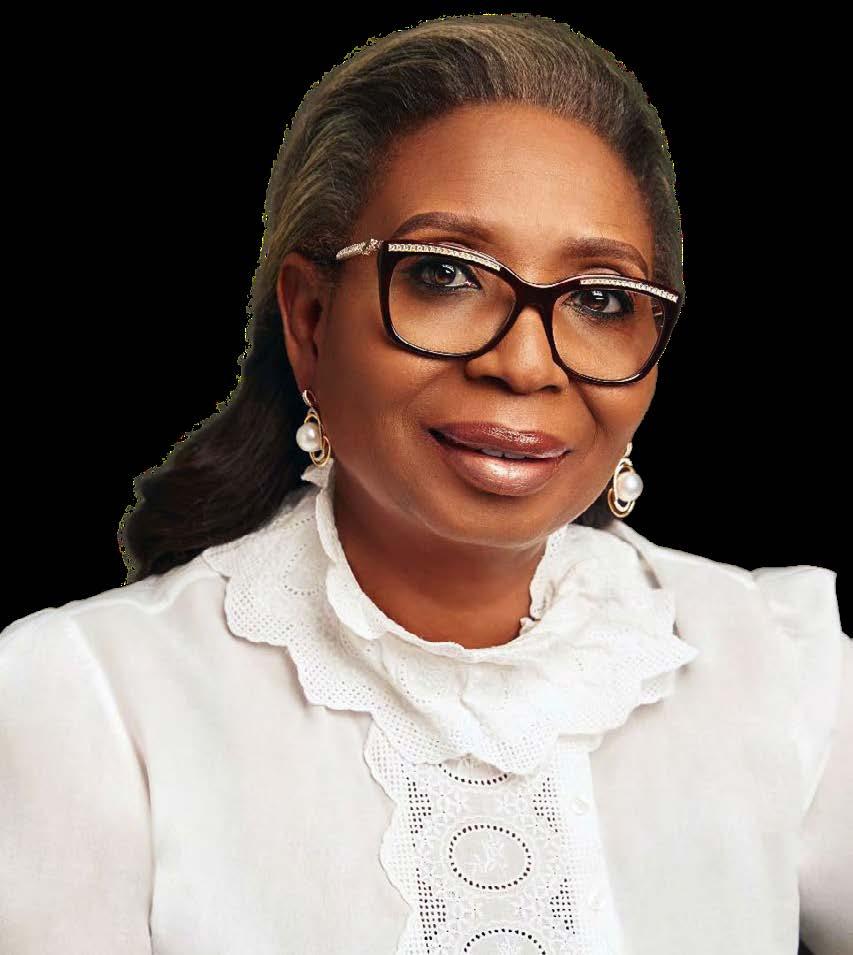
Harriet-Ann Omobolanle Bola Adesola is not just a name in Nigerian finance, she’s a foundational force. With over three decades of banking excellence, she holds the distinguished role of Senior Vice-Chairman, Africa at Standard Chartered Bank, after serving as MD & CEO of its Nigeria and West Africa operations from 2010 to 2019.
Bola’s journey is a testament to strategic leadership and industry transformation. Early in her career, she held leadership positions at Citibank in Nigeria and Tanzania, before becoming Managing Director of Kakawa Discount House and Executive Director at First Bank. In 2001, she co-founded WIMBIZ (Women in Management, Business & Public Service), Nigeria’s leading gender-focused professional network, setting a powerful precedent for female mentorship and empowerment. Beyond that, her influence stretches to corporate governance, as Chair of the CBN Bankers’ Committee’s sub-committee on Economic Development, Sustainability & Gender, and board roles at NIBSS, FMDQ, and CSCS. Internationally, she has a distinguished presence as CoVice-Chair on the UN Global Compact Board, and continues to drive inclusive leadership across sectors.

Bola’s legacy is defined by excellence, pioneering leadership, and unwavering advocacy. She exemplifies what it means to lead with both purpose and impact in Nigeria’s financial ecosystem.
In January 2024, Yetunde B. Oni broke a formidable barrier when she became the first female Managing Director and CEO of Union Bank of Nigeria, stepping into the role amid a major leadership overhaul mandated by the Central Bank of Nigeria. A banker with nearly three decades of industry experience, she introduces a bold new chapter for the century-old institution.
Her career began in Treasury & Money Markets at Prime Merchant Bank in 1991. She then spent over a decade as a Relationship Manager at Ecobank before joining Standard Chartered Bank in 2005. Rising through the ranks, she held key roles, heading Local Corporates, leading Commercial Banking across West Africa, and in 2021, became the first female Managing Director and CEO of Standard Chartered Bank Sierra Leone.
Oni holds a Bachelor’s degree in Economics from the University of Ibadan, an MBA from Bangor University, and has completed leadership courses at Oxford and INSEAD. She’s also an active member of WIMBIZ and a fellow of the Chartered Institute of Bankers of Nigeria.
Her ascent to the helm of Union Bank goes beyond breaking the glass ceiling; it brings a wealth of experience, composure in turbulent times, and the promise of steady, strategic growth. For many young women in banking, Yetunde Oni’s leadership is a powerful reminder that resilience, expertise, and vision are reshaping the future of Nigerian finance.
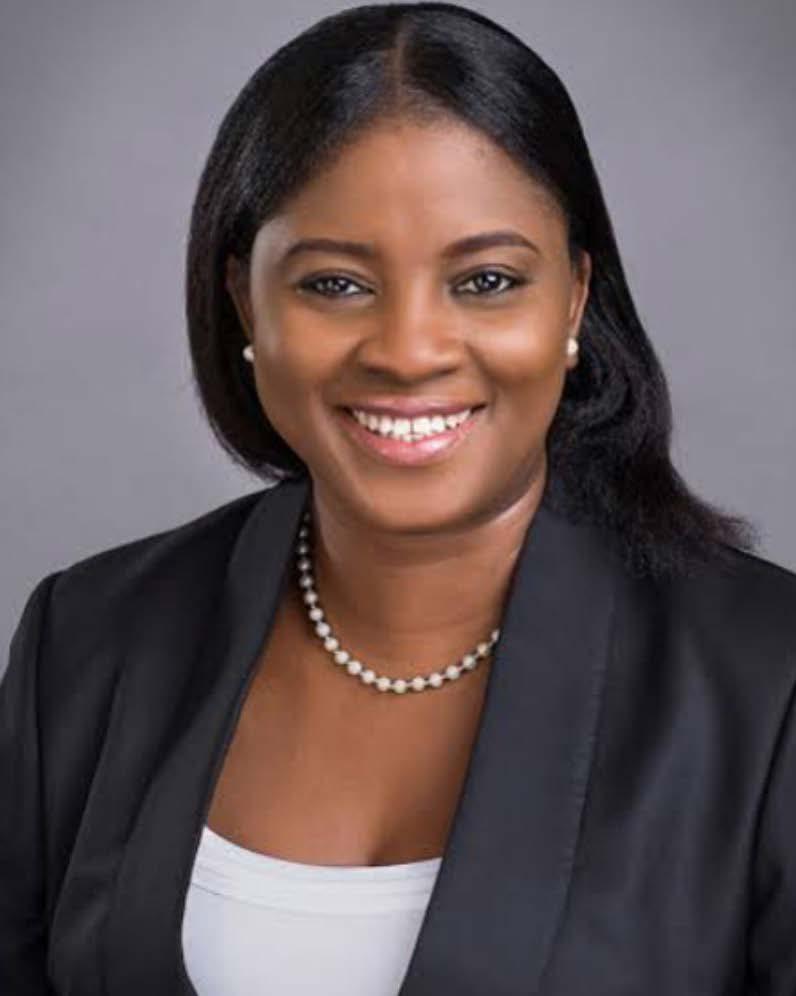
In September 2020, Ireti Samuel-Ogbu etched her name in Nigerian banking history by becoming the first female Managing Director and CEO of Citibank Nigeria, a transformative moment that underscored her international banking prowess and local impact. Her journey is defined by global experience and strategic finesse. Prior to leading Citibank Nigeria, she served as the EMEA Head of Payments and Receivables within Treasury & Trade Solutions, a role she held in London, where she managed complex crossborder payment systems across Europe, the Middle East, and Africa.
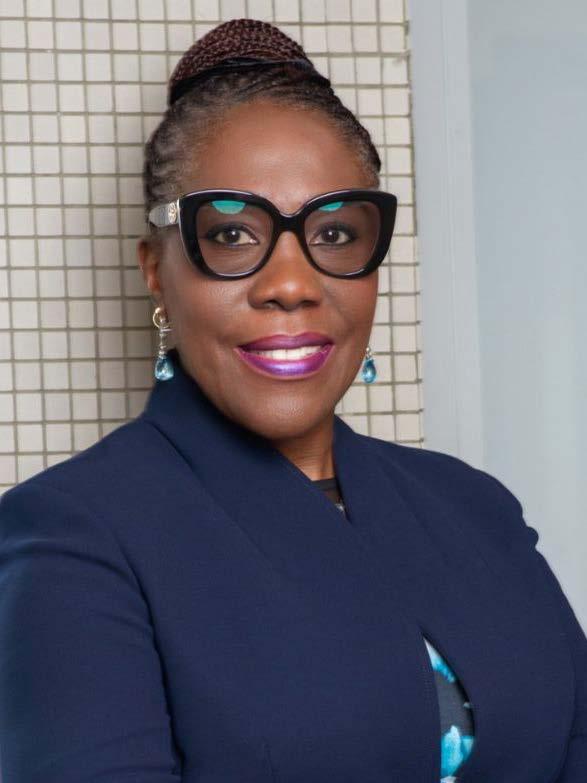
A champion of diversity and mentorship, Samuel-Ogbu is the cofounder of the Sapphire Leadership Program for the MEA region and the Momentum Program in the UK, initiatives designed to elevate female leadership across banking. She also holds leadership roles as EMEA co-Chair for Citi’s Women’s Affinity Group.
Her influence extends beyond Citi’s walls: she currently serves as Chair of the Board of Directors at Africa Finance Corporation (AFC), leveraging her three decades of banking experience to steer infrastructure financing across the continent.
Ireti Samuel-Ogbu represents a blend of global banking excellence, inclusive leadership, and mentorship. Under her guidance, Citibank Nigeria has not only deepened its institutional strength but also reaffirmed its role as an advocate for gender equality and inclusive leadership in the African finance sector.
Nneka Onyeali-Ikpe stands as a shining example of resilience, vision, and leadership in Nigeria’s banking industry. As the first female Managing Director and Chief Executive Officer of Fidelity Bank, she embodies the changing face of finance in a country where women are increasingly claiming space in boardrooms traditionally dominated by men. With over three decades of banking experience spanning operations, corporate banking, retail, and commercial banking, her journey reflects the value of steady growth, expertise, and bold decision-making.
Since assuming leadership in 2021, Onyeali-Ikpe has been instrumental in charting a new course for Fidelity Bank, setting ambitious growth targets and steering the bank towards becoming one of the leading Tier-1 financial institutions in Nigeria. Her focus on digital transformation, international expansion, and customercentric solutions highlights her ability to blend innovation with traditional banking excellence. More importantly, her tenure has been defined by a culture of inclusivity and empowerment— qualities that inspire the next generation of women in finance.
Beyond her achievements in banking, Onyeali-Ikpe represents a broader narrative: the power of women redefining leadership in Africa’s financial sector. Her story isn’t just about banking metrics and balance sheets; it is about breaking barriers, fostering innovation, and proving that leadership knows no gender. In an era where finance continues to evolve, she remains a key voice and role model, demonstrating that Nigerian women are not only part of the conversation but are also shaping the future of the industry.

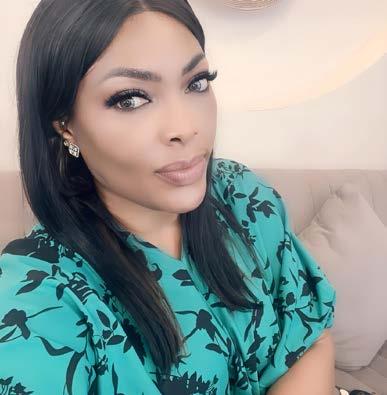
OBIAJUNWA @aaddaahh
Anew U.S. study revealed that 63% of Gen Z workers are already dipping into their retirement savings — and the oldest among them is just 28. Forty-two percent used the money to pay off debt, and another 25% to cover urgent bills like medical expenses, housing, or car repairs.
At first, I thought: reckless. Retirement money at 23? Madness.
But then I looked closer.
Maybe it’s awareness. Maybe rebellion. Or maybe, just maybe, they’ve cracked something we missed.
Because here’s the thing: while Americans are pulling from 401(k)s, Gen Z everywhere is doing the same thing in spirit — refusing to wait for a mythical “someday” to live.
They’re not dipping into pensions in Nigeria (let’s be honest, most don’t even know where their PFA office is, and the withdrawal rules are tighter than a Nigerian dad guarding the remote during evening news). But they’ll happily spend half their salary on a weekend in Zanzibar, or book a last-minute trip to Ghana — and by Monday? They’ve launched a side hustle to cover the bills.
It’s not recklessness. It’s audacity. They do them.
They are bold with their joy.
after the house, after the school fees. By the time “later” arrived, our knees were already negotiating with us every morning.
Gen Z is rewriting that script. For them, joy belongs in the now. They book the trip. They light the candle. They eat the small chops first, not after the “high table” has finished their speeches.
And maybe they’re right.
Because when I was their age, my generation’s dream was escape. Abroad was the ultimate prize — London, America, anywhere but here. We were raised to believe “making it” meant leaving.
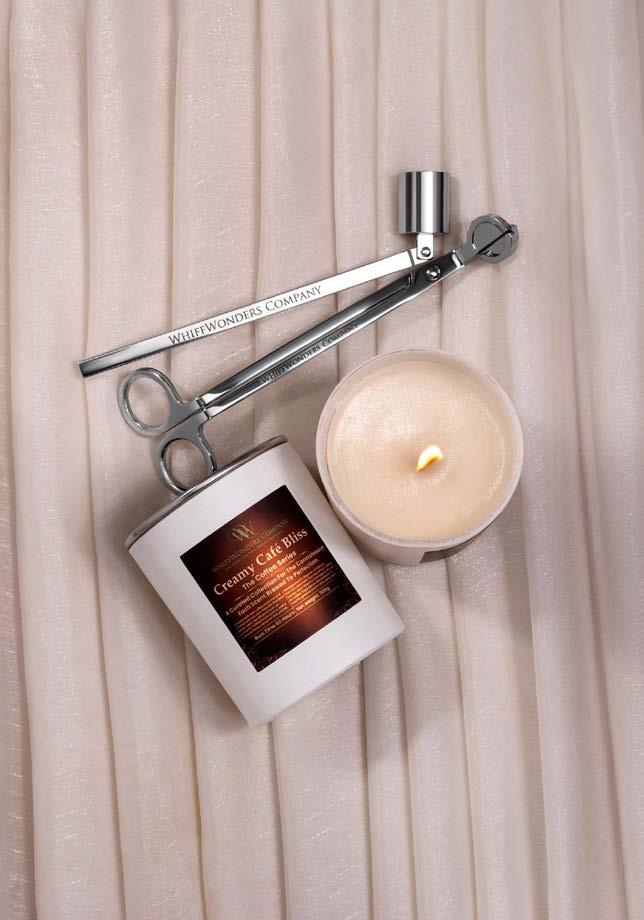

They don’t hoard experiences for “later.” They don’t delay softness for retirement. They do it now. Loudly. With filters, playlists, and hashtags.
And honestly? I admire it.
My generation was raised on “delay gratification.” Save first, enjoy later. Joy was always in the future: after the promotion,
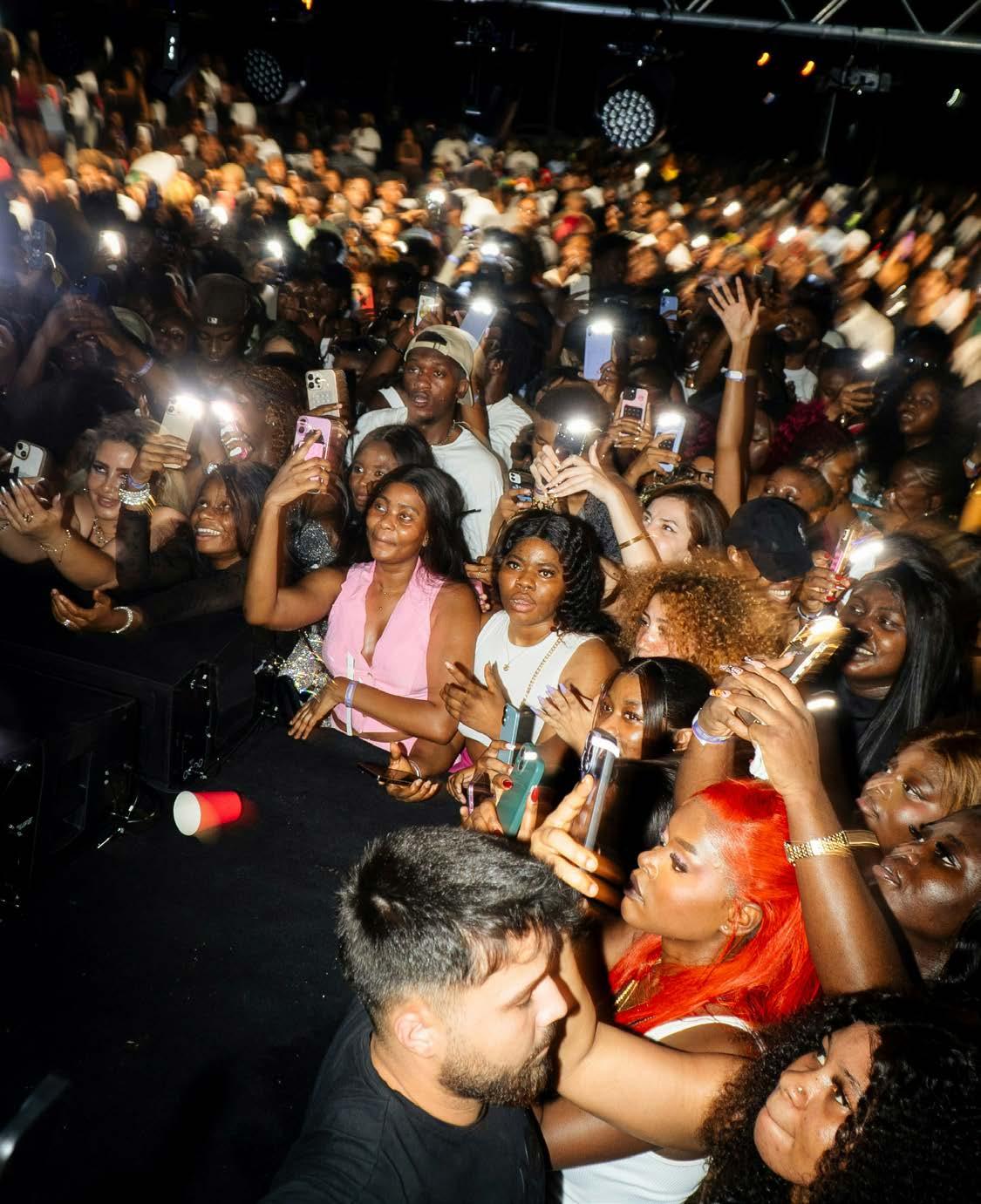

But Gen Z? They flipped the script. They’ve made Lagos, Accra, and Nairobi the places to be. They’ve turned the motherland into main character energy. Lagos — the city we once endured — they see as vibes. Dusty sneakers? Fashion. Street food? Content. Market noise? Background music for TikTok.
And look at Detty December. What started as end-of-year madness in Lagos is now a full-blown cultural export: Parties, concerts, beach raves — a whole season. Ghana has Afro Nation and Chale Wote. Suddenly, Accra in December feels like the centre of the world. Nairobi has its own scene. Kampala has Nyege Nyege.
Where my generation saw endurance, they see experience. They’ll trek from Yaba to Surulere if it means thrift shopping, suya, and a story to post. They’ve taken the same chaos that gave us headaches and reframed it as adventure.
And then there’s their emotional fluency. They don’t “manage.” If they’re tired, they rest. If
they’re sad, they say it. If they’re happy, they scream it. They live in the present with a confidence I wish I had at their age.
I once asked a staff member to prepare a deck. She sent it on Canva. At the time, I didn’t even know what Canva was. She didn’t know how to use PowerPoint. We were stuck. The old me might have been frustrated. But instead, I learnt Canva. Because Gen Z has taught me: sometimes the new way is the only way forward.
It reminded me of my dad’s family meetings — six hours long, Lagos to London flight time — ending with, “A word is enough for the wise.” Six hours for one word! Meanwhile, Gen Z would have said it in three TikTok slides with trending audio.
They don’t wait for perfect timing. They don’t hoard words. They say it, live it, and move on.
And maybe that’s their greatest sermon: joy doesn’t wait for retirement. Life is happening now.
Because in the end, what Gen Z is teaching us isn’t recklessness — it’s remembrance. That life is for the living, not the hoarding. That softness and presence aren’t luxuries, but survival tools.
And maybe that’s the real luxury silk of their philosophy: It doesn’t scream. It flows.
It reminds us that joy, like good fabric, should be worn often — not saved for someday.
And truthfully? Joy isn’t just for Gen Z. It’s for all of us — in the candles we light, the body butter we smooth on, the rooms we fill with WhiffWonders.

One of the main causes of uneven skin tone is the sun. When your skin is exposed to sunlight without protection, it produces extra melanin as a defence mechanism. This often leads to sunspots, dark patches, and general unevenness. That’s why sunscreen should be part of your daily routine. By wearing sunscreen every day, you not only shield your skin from further damage but also allow your other skincare products to work more effectively.
When dead skin cells accumulate on the surface of your skin, they can block the view of fresh, glowing skin underneath. This buildup often makes the skin look rough, dull, and uneven. Exfoliation helps to remove these dead cells and reveal newer, smoother skin beneath. If you’re starting out, it’s best to exfoliate once or twice a week to avoid overdoing it and causing irritation. Regular exfoliation will gradually make your skin appear brighter, softer, and more even in tone.
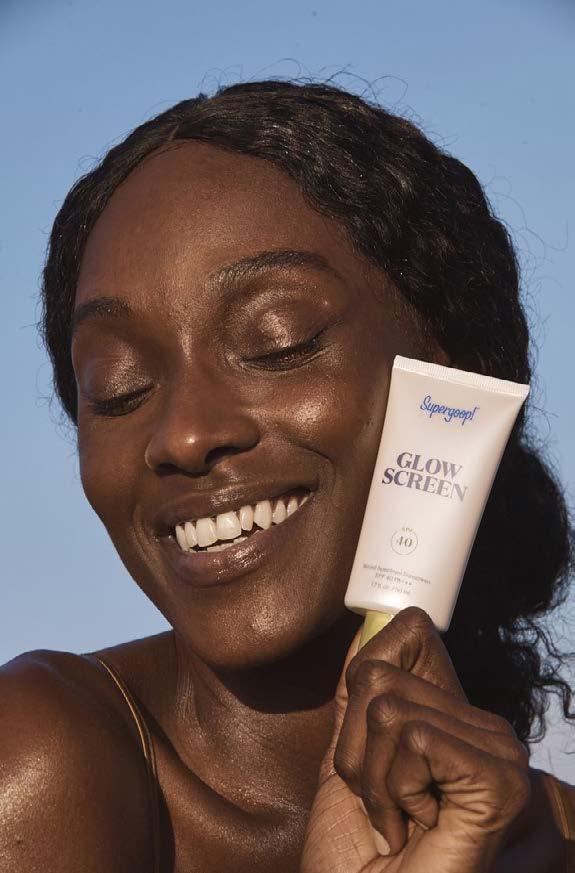
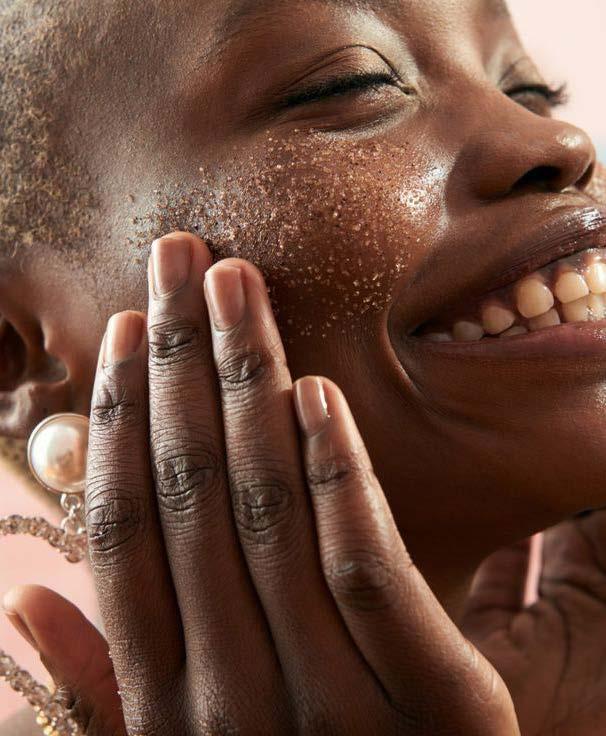
BY DORCAS AKINTOYE
Uneven skin tone is a common skin concern, meaning that some parts of your skin appear darker or lighter than others. For some people, it appears as dark spots, acne scars, or patches of hyperpigmentation. For others, it may look like dull, rough areas that don’t blend with the rest of the face. This usually occurs due to factors like sun exposure, acne, hormonal changes, ageing, or environmental pollution. Even though it can be frustrating, the good news is that uneven skin tone is not permanent. In this article, we will share five effective ways to fix uneven skin tone.
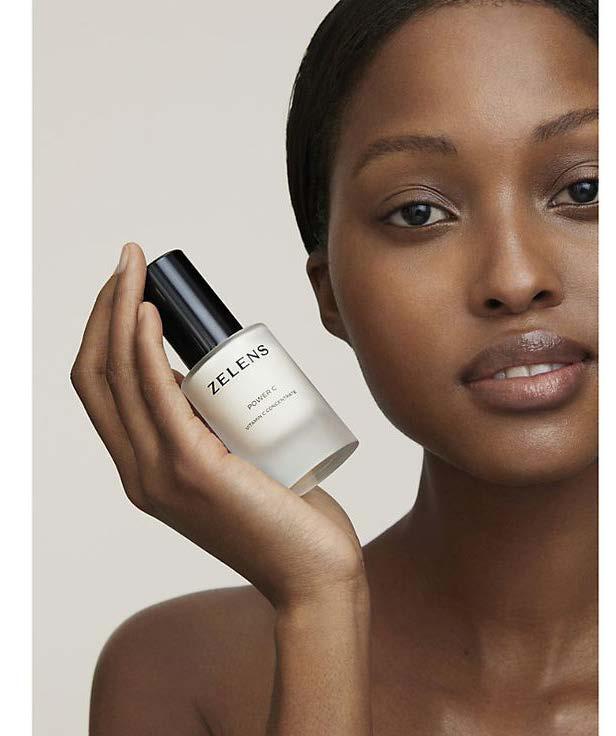


Sometimes, uneven skin tone requires targeted treatment. Skincare products containing brightening ingredients like vitamin C, niacinamide, alpha arbutin, and liquorice extract are known to fade dark spots and promote a more even complexion. With consistent use over several weeks, you’ll begin to notice that your skin looks clearer and more balanced.
Dryness can make uneven skin tone appear worse than it actually is. When the skin lacks moisture, it tends to look patchy, rough, and dull. To address this, hydrate your body from the inside by drinking plenty of water and from the outside with a good moisturiser. Look for moisturisers with ingredients like hyaluronic acid, glycerin, or ceramides, which help lock in moisture and keep your skin soft and plump.
Your lifestyle has a significant impact on your skin’s appearance. Skincare products can only do so much if your overall health habits aren’t supportive. Eating a balanced diet rich in fruits, vegetables, and antioxidants helps protect your skin from damage caused by free radicals. Getting enough sleep allows your skin to repair and renew overnight. By caring for your body from within, you’ll notice your skin looking healthier and more even on the outside.
Uneven skin tone may be a common issue, but it doesn’t have to define your skin. With the right habits, you can restore your skin’s balance and glow. The process takes time and patience, but with consistency, the results will become evident.

BY JOHNSON CHUKWUEKE
There’s something magical about mornings—the way the world feels quiet and full of possibility. But when your “commute” is just a walk from your bed to your laptop, it’s easy to lose that sense of ritual. Working from home has blurred the boundaries between personal life and professional life, and for many, mornings now feel like a chaotic blur of coffee, emails, and Zoom calls. That’s where mindful mornings come in. A little intentionality at the start of your day can transform how the rest of it unfolds, boosting not just productivity but also mental and emotional well-being.
Here are five ways to craft mindful mornings that set you up for success while working from home.

Resist the urge to grab your phone the second you open your eyes. Instead, start your day with a grounding activity—whether that’s deep breathing, journaling, or simply expressing gratitude for one thing in your life. This slight shift sets the emotional tone for the hours ahead.

That rushed cup of coffee doesn’t count as breakfast. A hydrating glass of water paired with a light, balanced meal—like oats, eggs, or fruit— prepares both your brain and body to focus. Think of food as fuel, not just filler.

You don’t need an hour-long workout. Even 10 minutes of stretching, yoga, or a brisk walk can boost energy and sharpen focus. Movement tells your body it’s time to transition from rest to action.

Dress the Part
Comfort matters, but staying in pyjamas all day keeps you mentally tied to “relax mode.” Slip into comfortable yet presentable clothes. It’s not about impressing anyone—it’s about signalling to yourself that you’re ready for the day.

Before you log in, make a simple to-do list and carve out a workspace, even if it’s just a corner of your dining table. Defining your “work zone” helps your brain separate home from office, reducing overwhelm later.
Mindful mornings don’t require perfection or complicated rituals. They’re about creating a rhythm that works for you— one that balances energy, focus, and calm. By starting your day with intention, you give yourself the best chance at not just surviving your work-from-home lifestyle but thriving in it.
SEPTEMBER 23RD - OCTOBER 23RD

ELEMENT: AIR
RULING PLANET: VENUS
SYMBOL: SCALES
FLOWER: ROSE
BIRTHSTONES: OPAL
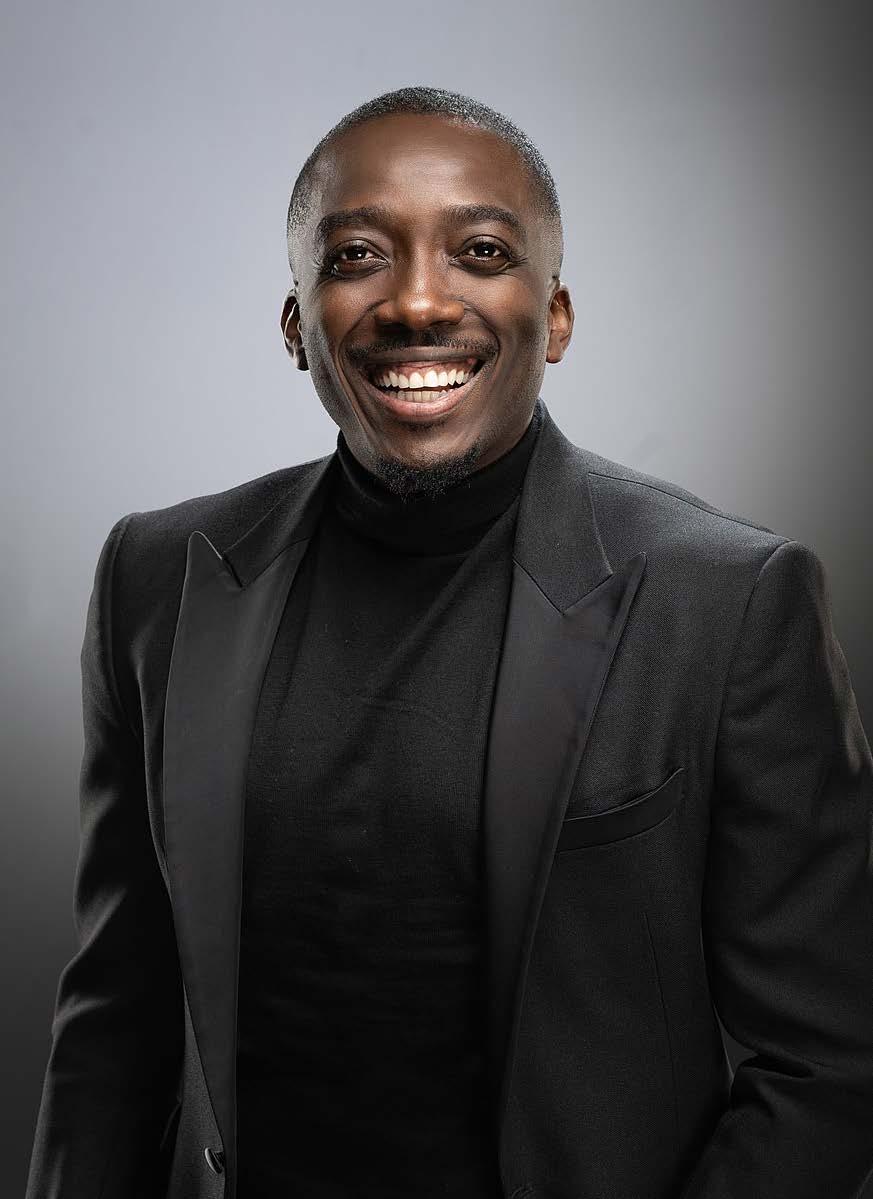
BY JOHNSON CHUKWUEKE

The Libra symbol—the scales—says it all. Libras crave balance in every aspect of life, from work and play to relationships and self-care. They are natural mediators, able to see both sides of a situation, which makes them excellent problem-solvers and trusted confidants.
A Libra’s world is rarely dull. They have an eye for aesthetics, whether in fashion, décor, or creative expression. From appreciating fine art to curating chic Instagram feeds, Libras embrace beauty and elegance in ways that inspire those around them.
Charisma comes effortlessly to Libras. They enjoy being around people, hosting gatherings, and engaging in meaningful conversations. Their natural charm and ability to listen make them the kind of friend everyone wants in their corner.
Libras are the embodiment of harmony, beauty, and charm. They remind us that life isn’t just about the hustle—it’s about creating balance, seeking fairness, and surrounding ourselves with beauty and connection. In true Libra style, they show us that when life feels unsteady, it’s the pursuit of balance that keeps us grounded.
f balance had a face, it would wear the charming smile of a Libra. Born between September 23 and October 23, Libras are ruled by Venus, the planet of love, beauty, and art. This influence makes them lovers of all things graceful—whether it’s a well-tailored outfit, a peaceful home, or a perfectly plated meal. Libras thrive on harmony, seeking not just personal balance but also fairness in the world around them. Their magnetic personality often makes them the “glue” in social circles, and people naturally gravitate toward their calm energy and diplomatic nature.
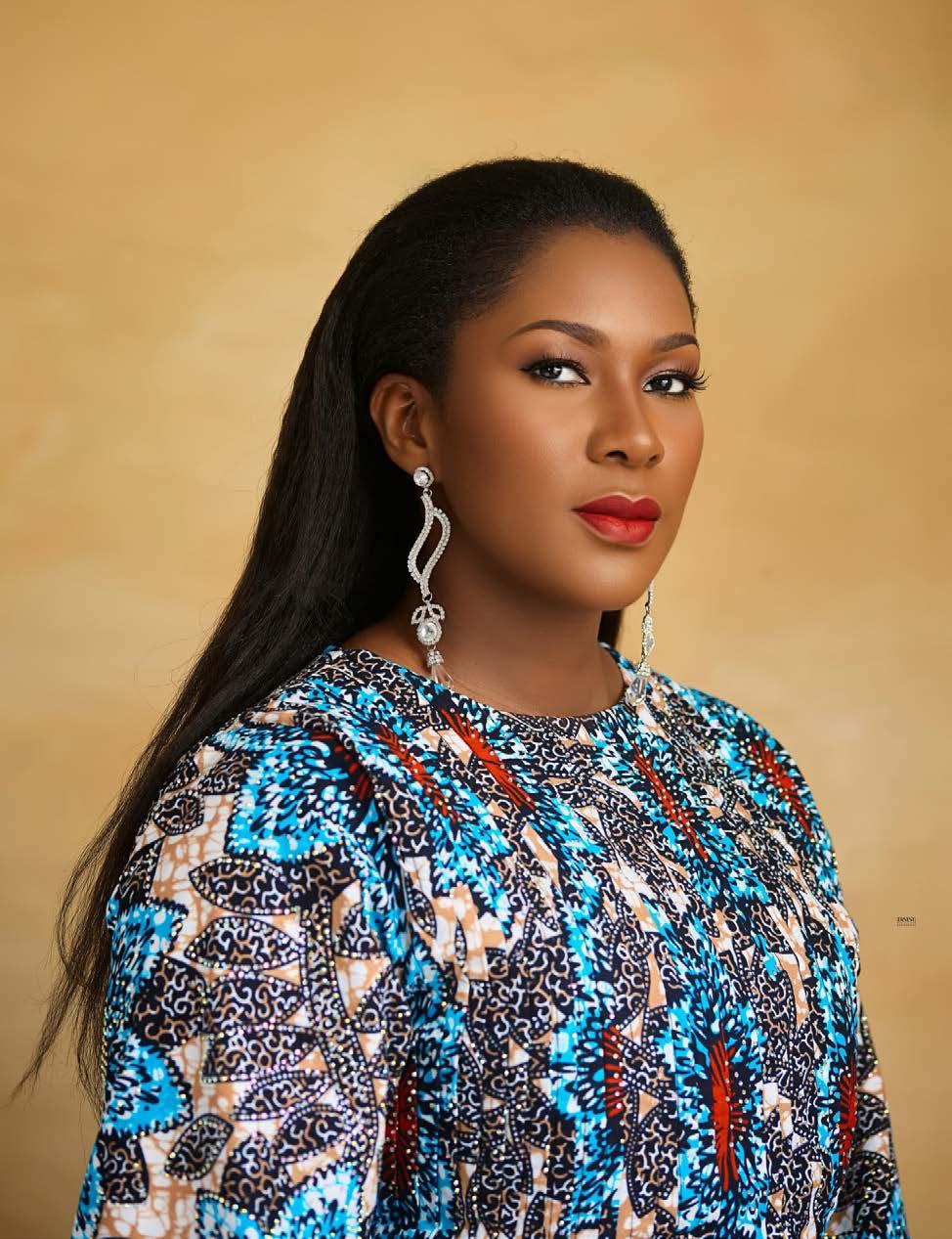
Stephanie Linus, October 2nd.

Will Smith, September 25th

Idon’t remember how the kiss started. One second, we were sitting close, laughing about something silly, and the next, his lips brushed mine. It was soft at first, almost shy, then it deepened. His tongue teased mine, slow and deliberate, like he was trying to taste every part of me. My body reacted before my mind could catch up.
When his hand moved to my breast, I felt a shiver run through me. His palm was cold against my warm skin, and the contrast made me let out a soft moan I couldn’t hold back. He smiled into the kiss like he had been waiting to hear that sound. My heart raced. Everything became faster, hotter, needier. Clothes scattered. Touches turned desperate. Every kiss carried an unspoken hunger.
We gave ourselves to each other completely. His hands mapped out my body as if he were trying to memorise me. I held onto him tightly, letting the moment consume me. It felt like the world outside had paused for us. When we both reached that peak together, it was overwhelming, an explosion of release and warmth that left us breathless.
I collapsed against his chest, my heart still beating fast. He wrapped his fingers around mine, looked at me with a quiet seriousness, and whispered, “I really love you.”
Those words should have made me feel safe, but instead, they sent a wave of fear through me. Then he asked, “Do you see yourself building a future with me?”
I froze. My first instinct was to pull my hand away. “Do we have to discuss this now?” I whispered.
“Why not?” he pressed, still calm.
“We just had a nice time… let’s stay in the moment,” I replied, forcing a smile. But he didn’t smile back. His eyes grew heavier as he asked, “Is this what our relationship is about to you? Just sex? Just moments? We’ve been together for five months, and I want us to take things seriously. I’m not here just to waste time.”
His words stung. Not because he was wrong, but because deep down, I knew I wasn’t ready for the kind of seriousness he was talking about. So, I shrugged and muttered, “Are we not taking things too fast?”
That broke him. He went quiet, his jaw tight. Slowly, he got up, pulled on his clothes, and said, “I’ll step out to see a friend. I’ll be back later.”
The silence in the room felt louder than his presence. I sat there, my body still warm

from his touch, but my mind spiralling. All my life, relationships had been about fun, vibe, and temporary comfort. No one had ever asked me to think beyond the moment. No one had ever asked me for something deeper.
Kolade was different. He wanted more than my body. He wanted me, all of me, and that terrified me.
I wasn’t scared of commitment itself. I was scared of what it demanded of me. Vulnerability. Sacrifice.
Truth. Things I wasn’t sure I could give, not yet. I thought he was joking when he first said he wanted us to be serious. But tonight, after everything, I realised he wasn’t.
I lay back on the bed, staring at the ceiling, feeling the emptiness where he had been. My body remembered the passion, but my heart couldn’t shake the question he asked me.
No matter how hard I thought about it, I didn’t have an answer.

Produced by Oscar-winner Jordan Peele (so much so that some people thought he directed this one) and directed/co-written by up-and-comer Justin Tipping (Kicks), HIM is either the extreme version of a hazing ritual gone wrong or it’s the feverish product of the lead character’s concussed brain. Whether it’s either of those or something else entirely, it’s meant to tell a tale about a young, promising quarterback, Cameron Cade (Tyriq Withers, I Know What You Did Last Summer), who many believe is a prime candidate to be the greatest football player of all time. The only thing stopping him is the current G.O.A.T. and Cameron’s new teammate, Isaiah White (Marlon Wayans), Cam’s childhood hero, who the team has asked to mentor the upstart.
Cameron is still technically recovering from a brain injury, received when a guy in a mascot costume clobbered him over the head (don’t ask me to explain because the film doesn’t bother to), and while doctors are telling him to take his time getting back to any kind of footballrelated activity, he knows that training with his hero is now or never. Hinting that he may be retiring after eight championship seasons, Isaiah invites Cameron to his home training facility, which seems like something more out of a science fiction movie than a sports film (I got a lot of Ex Machina meets Infinity Pool vibes from this flick), and the two go about a rigorous routine that seems to emphasise mental toughness more than any type of physical ability.
Isaiah and his crew of friends, players, and women (including his wife, played by Uncut Gems star Julia Fox) mess with Cameron relentlessly. They poke fun at his late father—anything to break his concentration and unravel his
BY BOLUWATIFE ADESINA
confidence. But during this regimen, Cameron also sees other players brutalised, all in the name of getting on Isaiah’s good side and wanting to look tough in front of the greatest player in the league. We can’t tell if Isaiah is trying to break the man who will take his place or if he sees potential in Cameron and really wants him to succeed. Whatever the answer, what Cameron is put through is nothing short of torture.
HIM essentially boils down to a whole lot of screaming, sports cliches about being a winner that are meant to pass for dialogue, and an unclear sense of what is real and what isn’t. There are supporting characters, including Tim Heidecker as Cameron’s agent, who sees dollar signs every time he looks at his guaranteed first-round draft pick; and comedian Jim Jefferies in a role I barely understood, but he’s at least amusing to a degree.
I walked away from HIM fully believing that director Tipping thinks football is the worst thing imaginable, especially for the male ego. He must believe the sport reduces people to a series of bumpersticker quotes about winning and pain and pushing forward, both in interviews and amongst themselves; it’s exhausting. But in the film, we add screaming and horror elements, complete with graphic injuries, loads of blood, and nightmare experiences for Cameron that lead us to believe that he’s headed for a psychotic break. If not that, perhaps one of the great athletes that kids can look up to—two sides of the same demented coin.
But the film doesn’t give us something that thoughtful or coherent; it’s vapid, flaccid, and confused—the screenplay is concussed in many ways.
And by the time it was over, I was bored and shifting in my seat. It’s incredible that just the night before, I sat through a two-hour, 45-minute film that flew by, but at around 95 minutes, HIM felt endless. More troubling, this movie officially makes it impossible to trust Peele’s name on any film as a producer. That might be the true tragedy at play here. If this is what he worked on instead, you can see why Peele fired his entire production team after missing out on 2025 standout Weapons.


Scan this with your camera or click to access the playlist (Youtube Music)
Sick of the endless sniping of Billy Butcher in The Boys? I have good news: another show exists in the same universe, and (whisper it) it might even be better than the original.
I’m talking, of course, about Gen V. Set at a university for ‘supes’ named Godolkin (the clue is in the name; pretty much everybody has a serious god complex), the first season served up lashings of blood, dark humour and teenage angst, while running on a roughly parallel timeline to The Boys’ fourth season.
Now it’s back for more. In addition to being the show’s sophomore outing, this is the first season to air after the death of star Chance Perdomo in a motorbike accident in 2024; fittingly, episode one opens with a simple ‘For Chance’.

Scan this with your camera or click to access the playlist (Spotify)
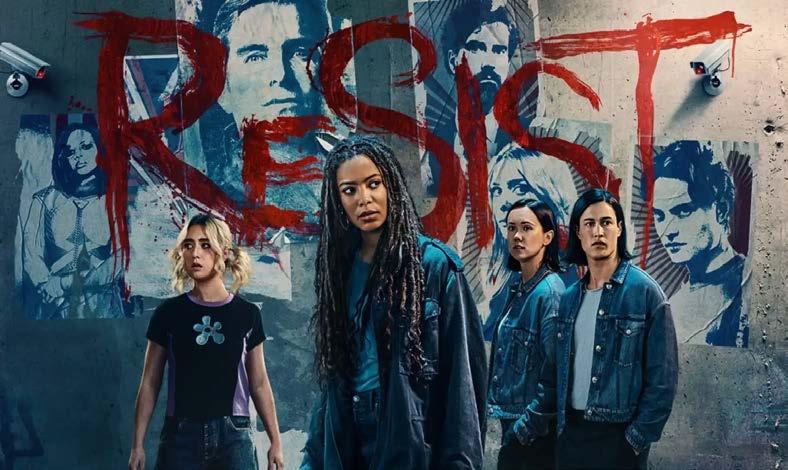
news, and the social media lecturer is a winged tradwife. “Feminism has killed America,” she chirps at one point; whoever writes the jokes for these shows is just as caustically funny as ever.
not be connected to the original Thomas Godolkin himself – baffling played by Spongebob/ Wicked’s own Ethan Slater. It’s a lot to be getting on with, but the show deftly juggles plotlines, leaving breathing room as it does for quieter moments that dig into the psyche of the leads. Broadway in particular does great work as the perpetually frazzled Emma, while Phillips is compellingly watchable as the increasingly bruised and battered Cate.
His character, Andre, still forms a central part of the season two plot. In the first season’s cliffhanger finale, Marie (Jazz Sinclair) Jordan (London Thor/ Derek Luh) and Emma (Lizze Broadway) wound up in supe prison after their classmates Cate (Maddie Phillips) and Sam (Asa Germann) went on a murderous rampage, leaving them to take the blame.
In the show’s opening moments, we find out that while Marie has managed to escape, Andre has died off-screen in prison, and his classmates Jordan (London Thor/ Derek Luh) and Emma (Lizze Broadway) start the season being bundled into a van back to Godolkin.
Once there, they’re swiftly exonerated and, after a press conference, are expected to start their new careers as the face of the university. The blood-slinging Marie, meanwhile, has gone on the run and is trying to juggle living in motels with tracking down her younger sister Annabeth.
After the events of The Boys fourth season, the battle lines have been starkly drawn: humans are the enemy, and the superheroes are the future of America. Seriously. The tagline ‘Make America Super Again’ is used several times, the Vought media machine is working overtime to spread fake
At the same time, human employees at God U are getting killed, bullied or threatened with rape at an alarming rate. Andre’s devastated father Polarity (Sean Patrick Thomas) is on a revenge-seeking mission. Oh, and there’s a new Dean, the wonderfully sinister Cipher (Hamish Linklater), whose power is a secret – though he seems to be hellbent on pushing his students’ powers to their absolute limit.
Amid all of this, we have an unfolding mystery concerning Marie’s past, which might or might
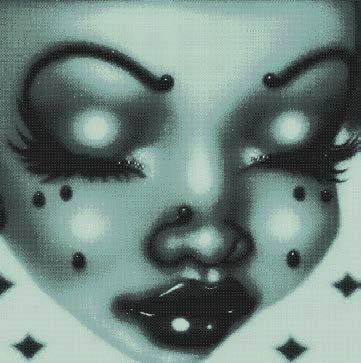
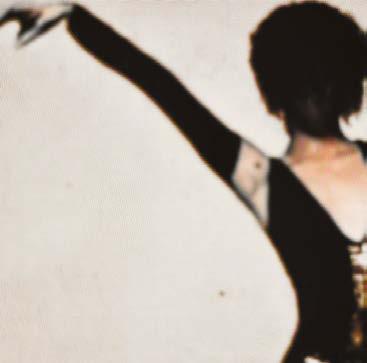




For diehard fans, cameos from The Boys abound: Starlight (Erin Moriarty) pops up at one point, as does Chase Crawford’s loathsome Deep, who is in charge with inducting newbies into a rather horrifying-looking frat ritual. It’s fun, though it does require you to have watched both series to get the most out of seeing them.
It could all read as cliché and overly self-referential, but the show carries it all off with just the right amount of swagger and attitude. God U is just as awful as ever; thank goodness for that.

